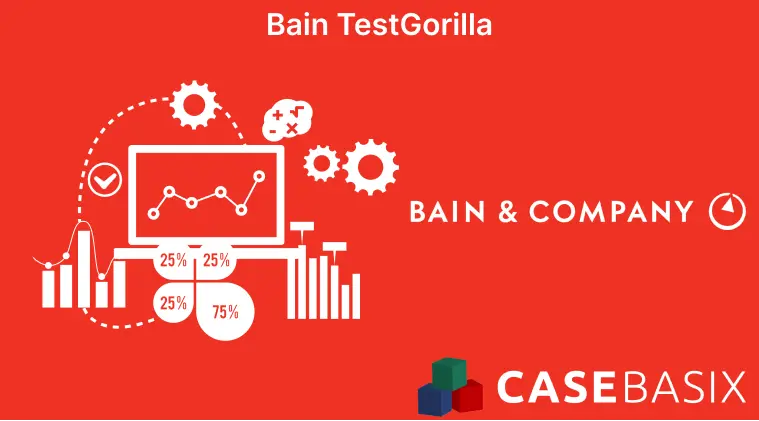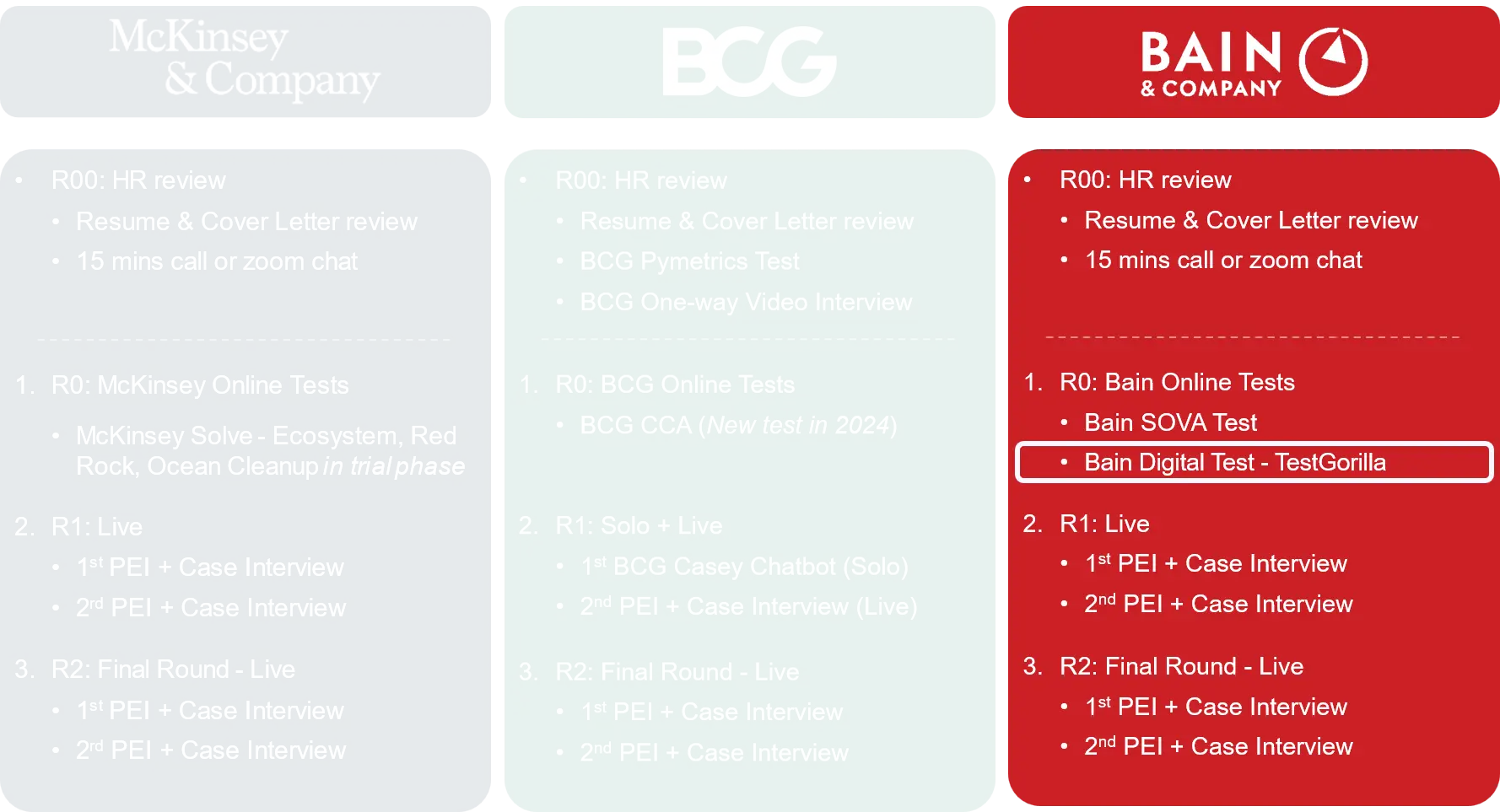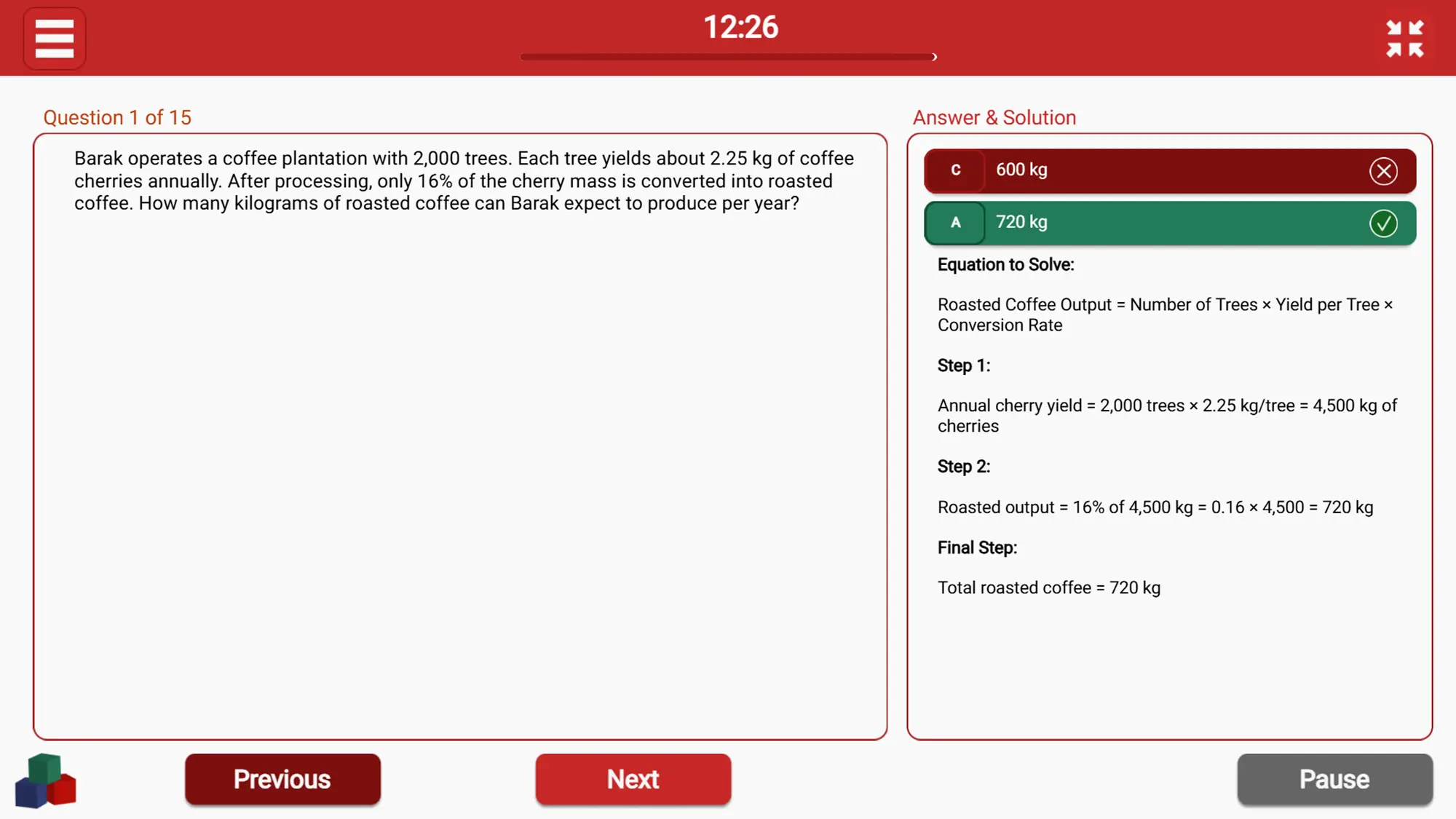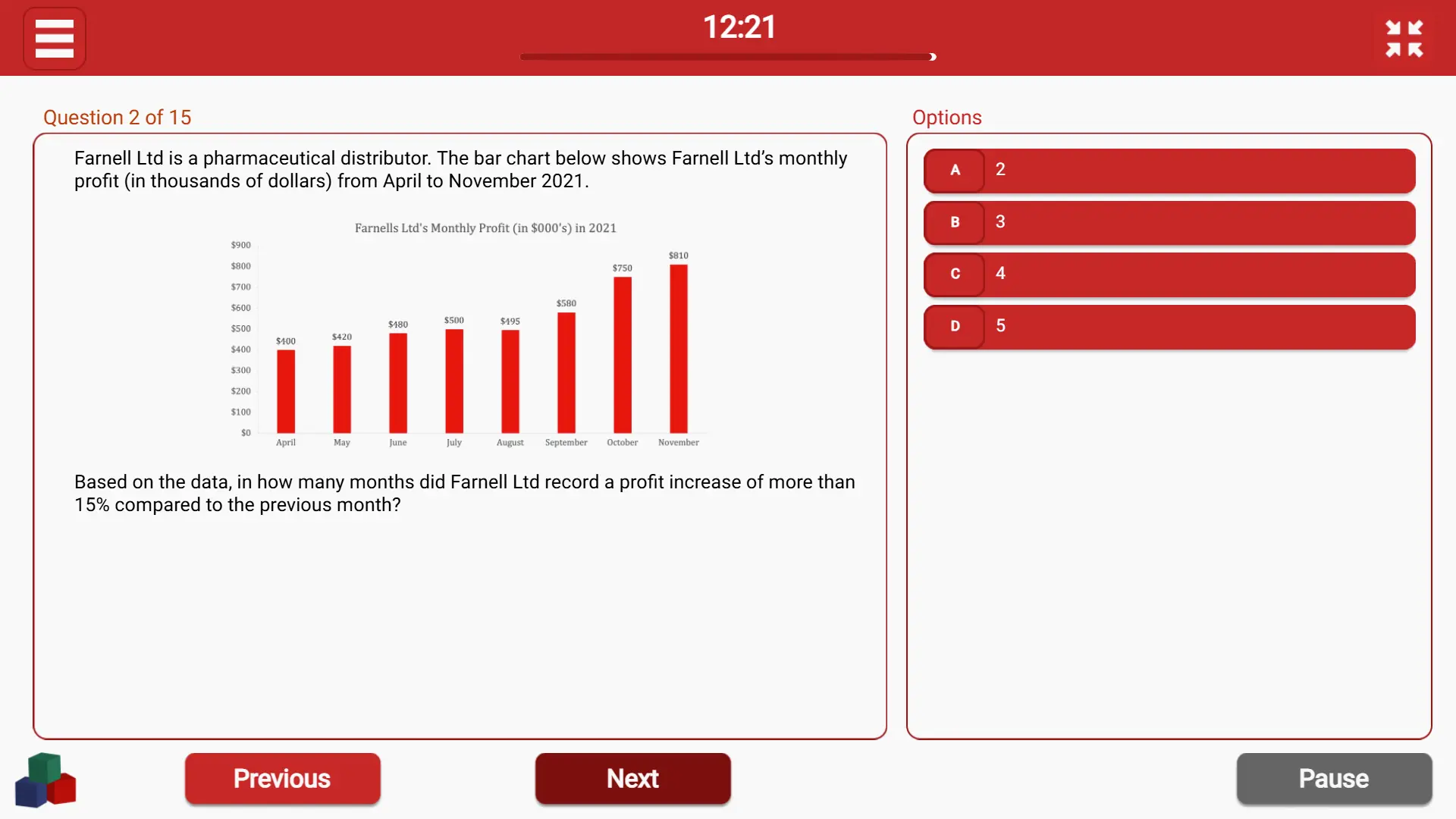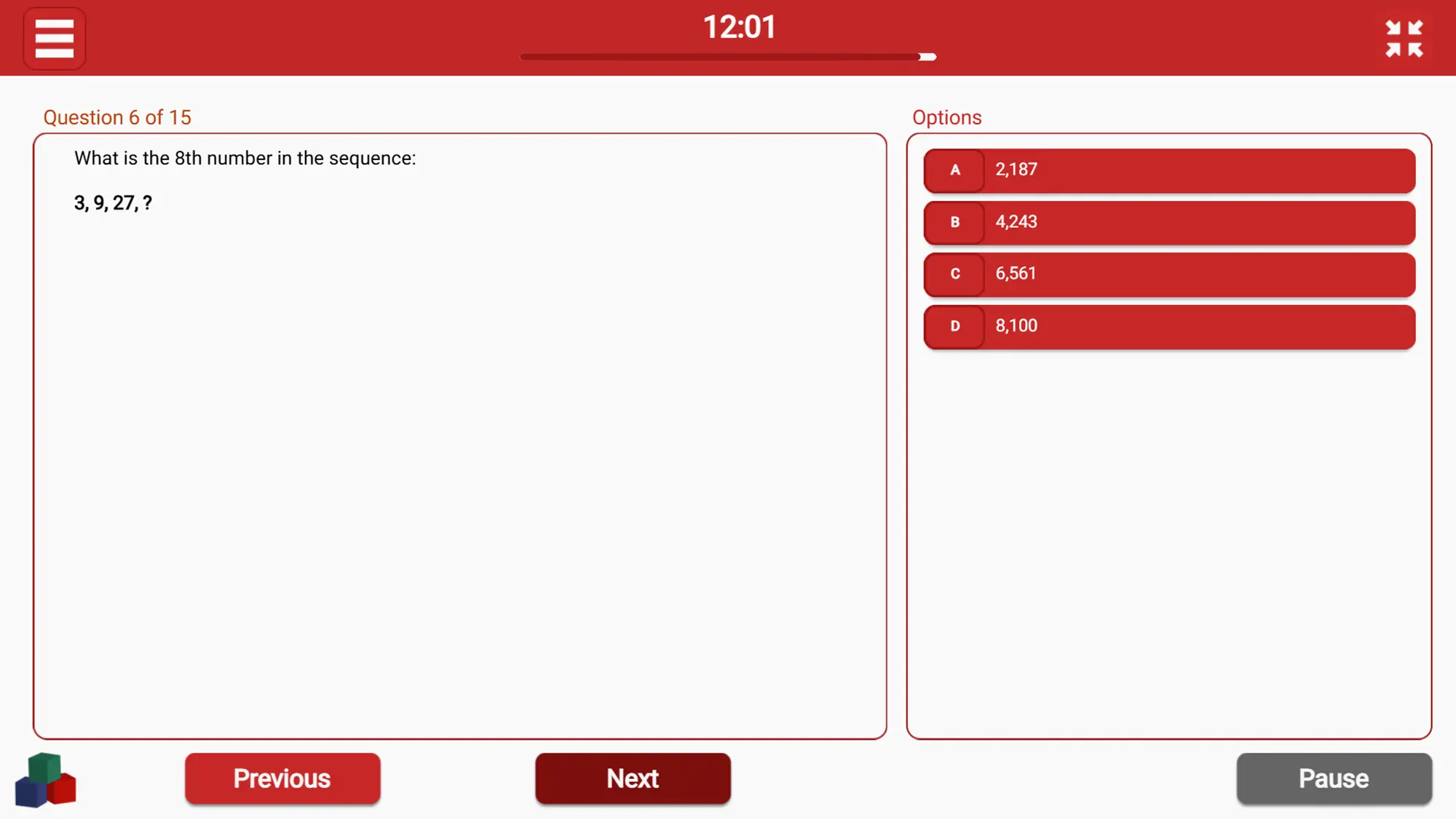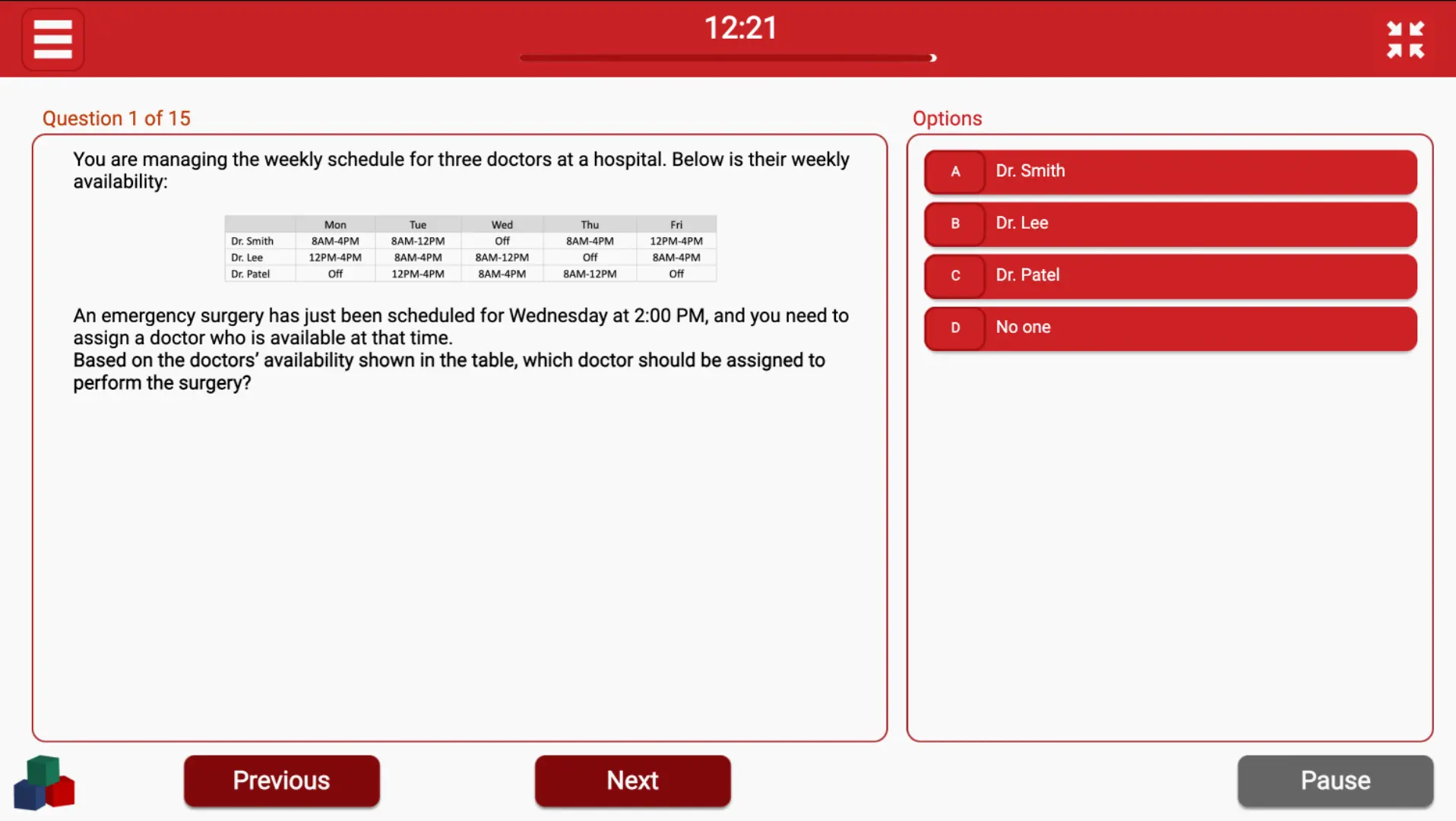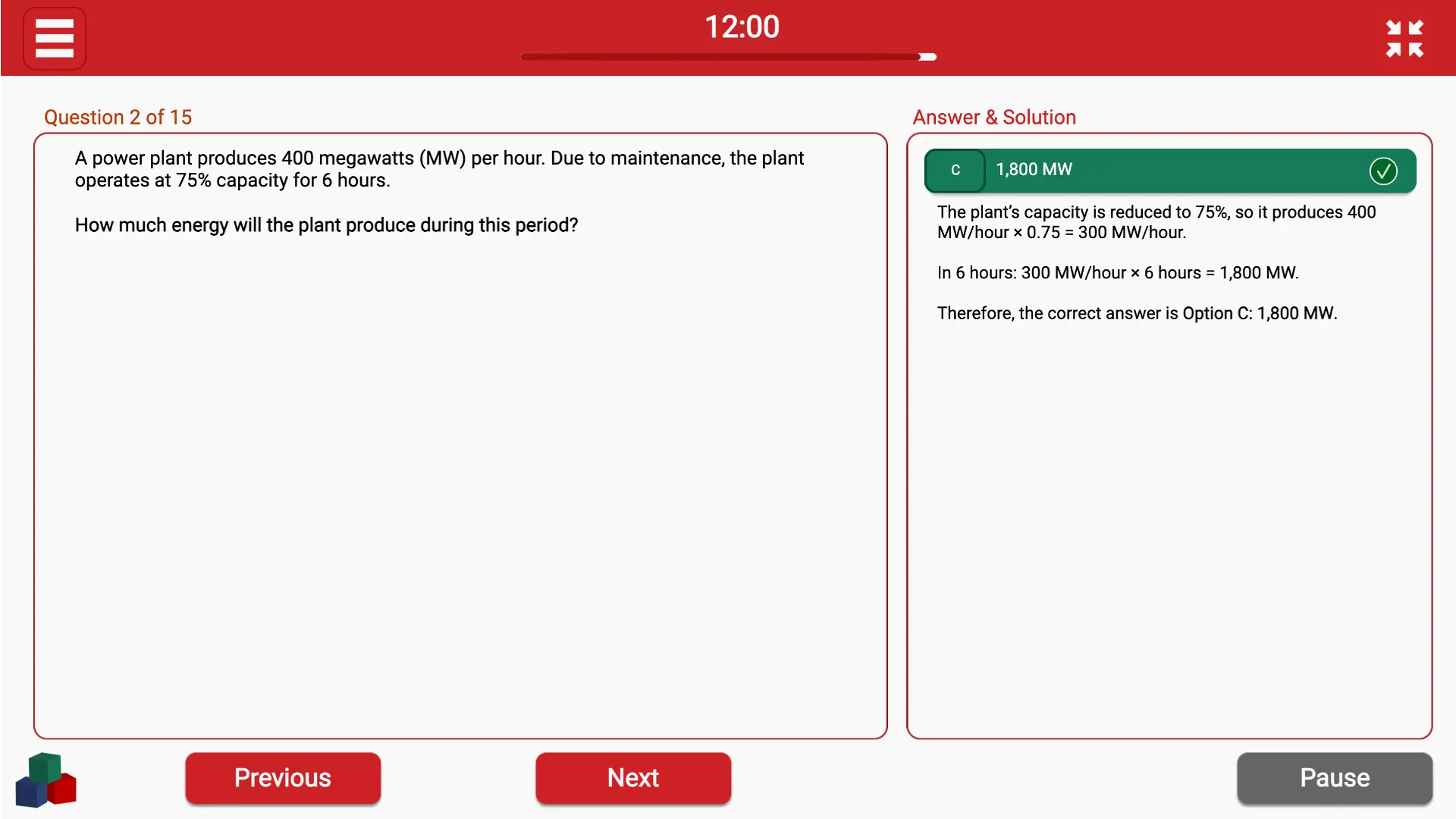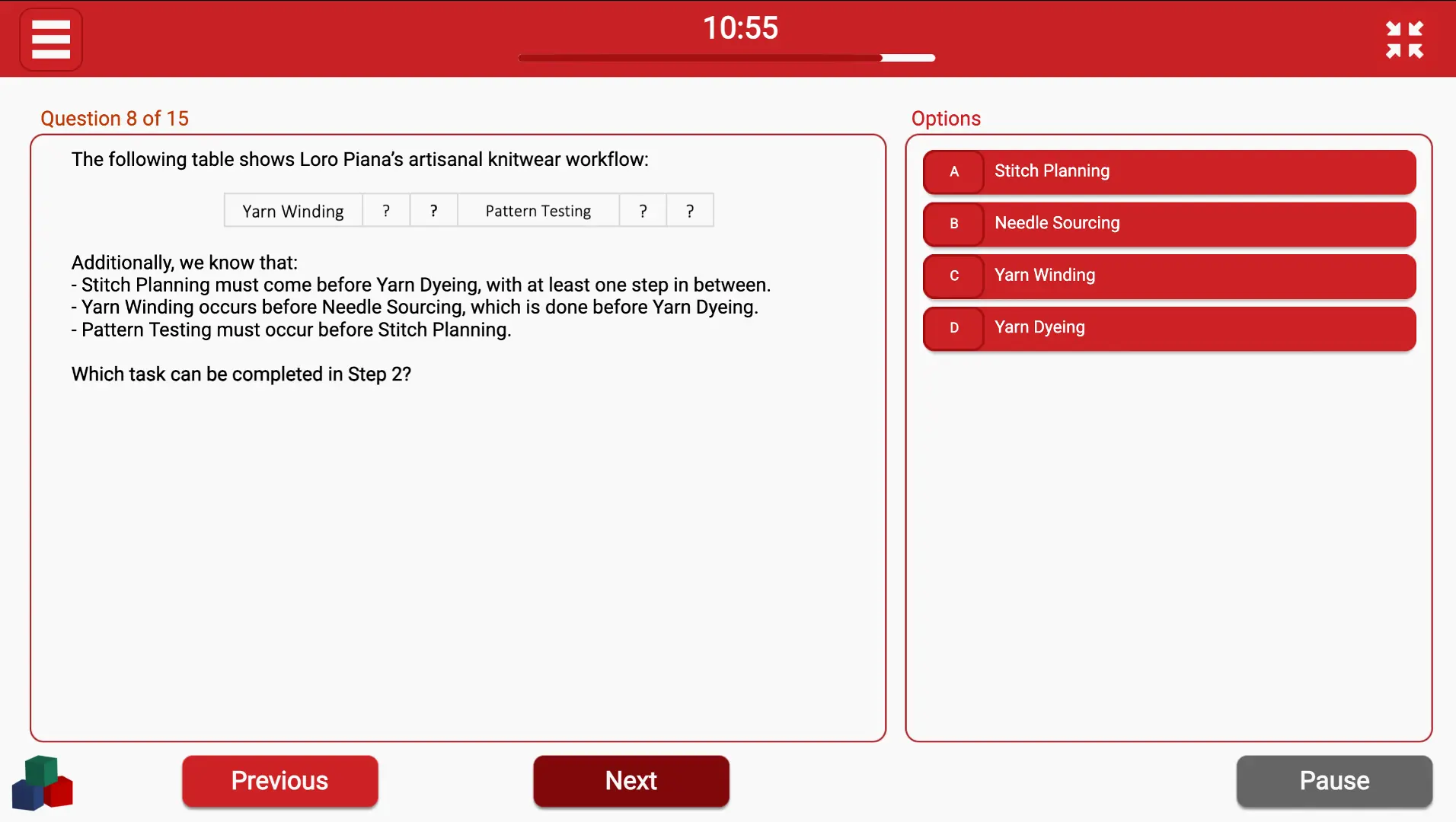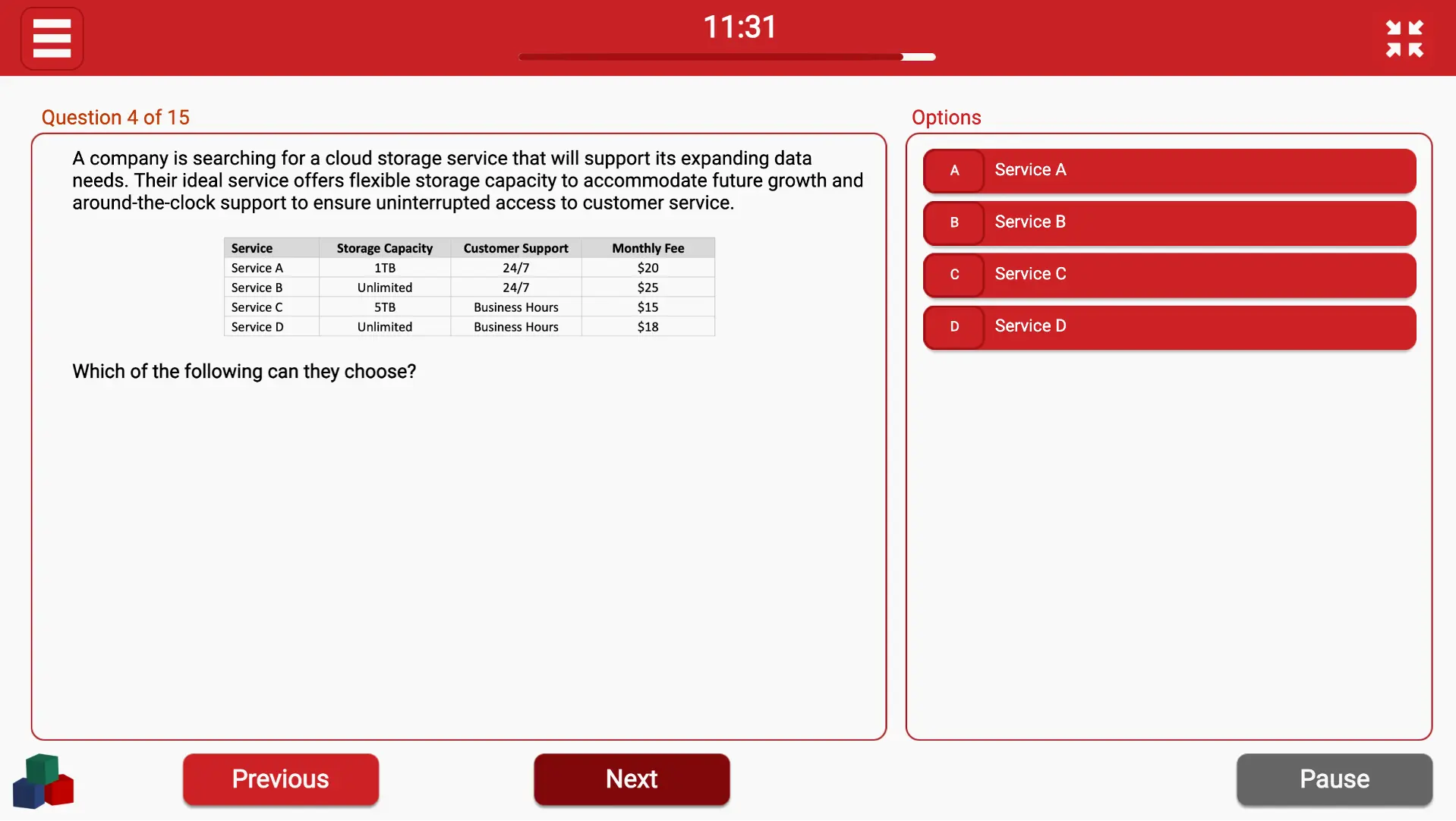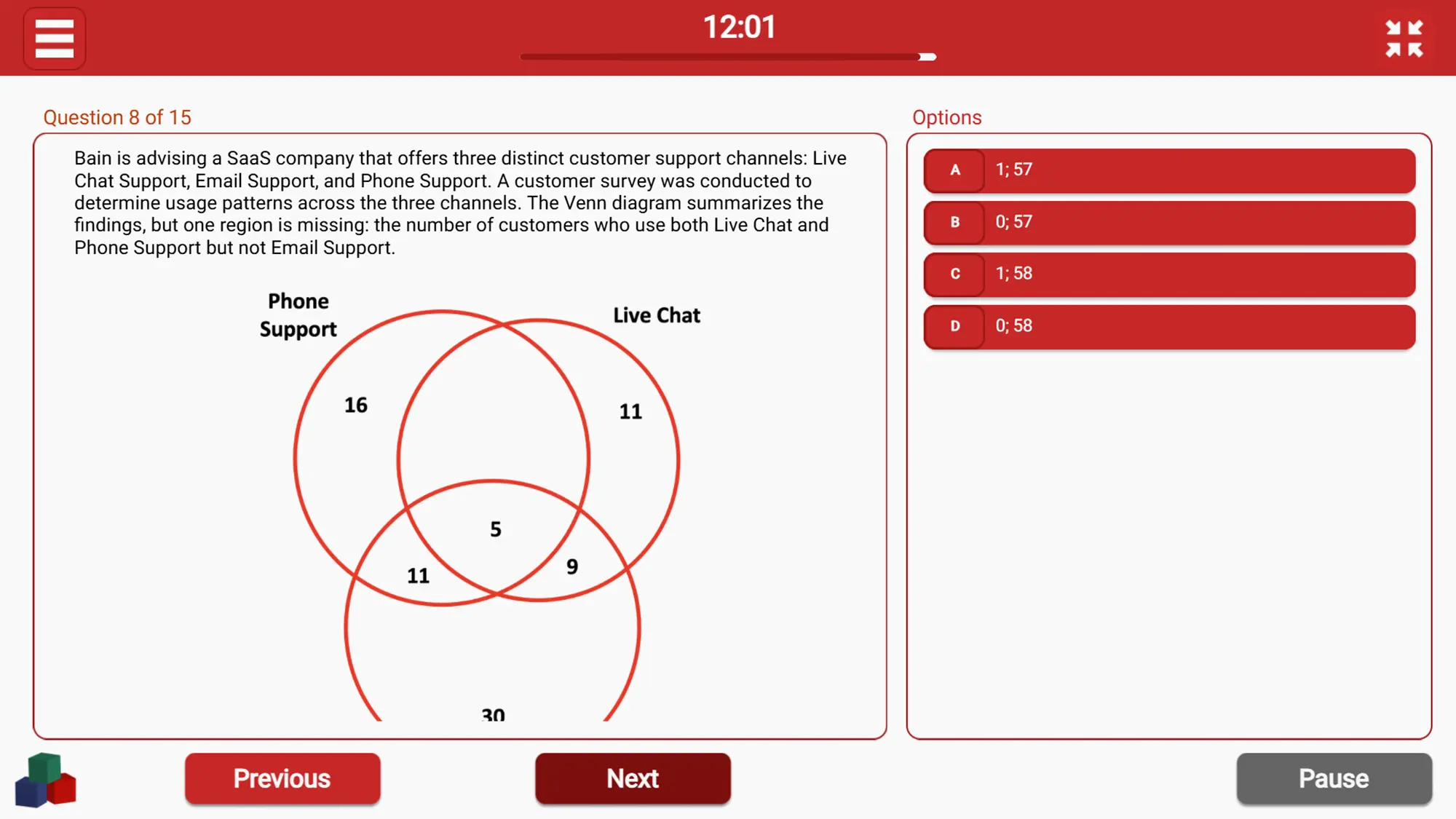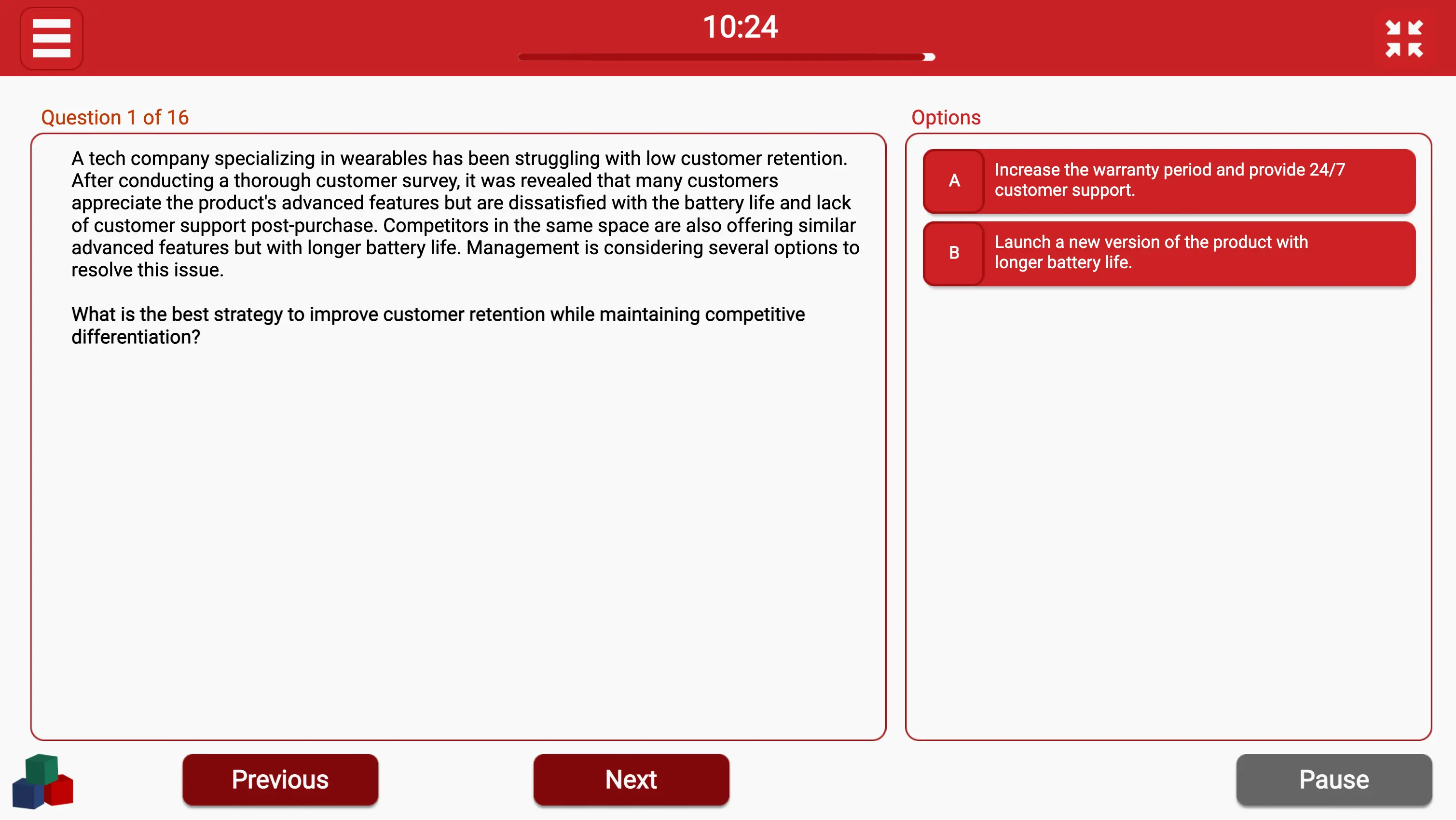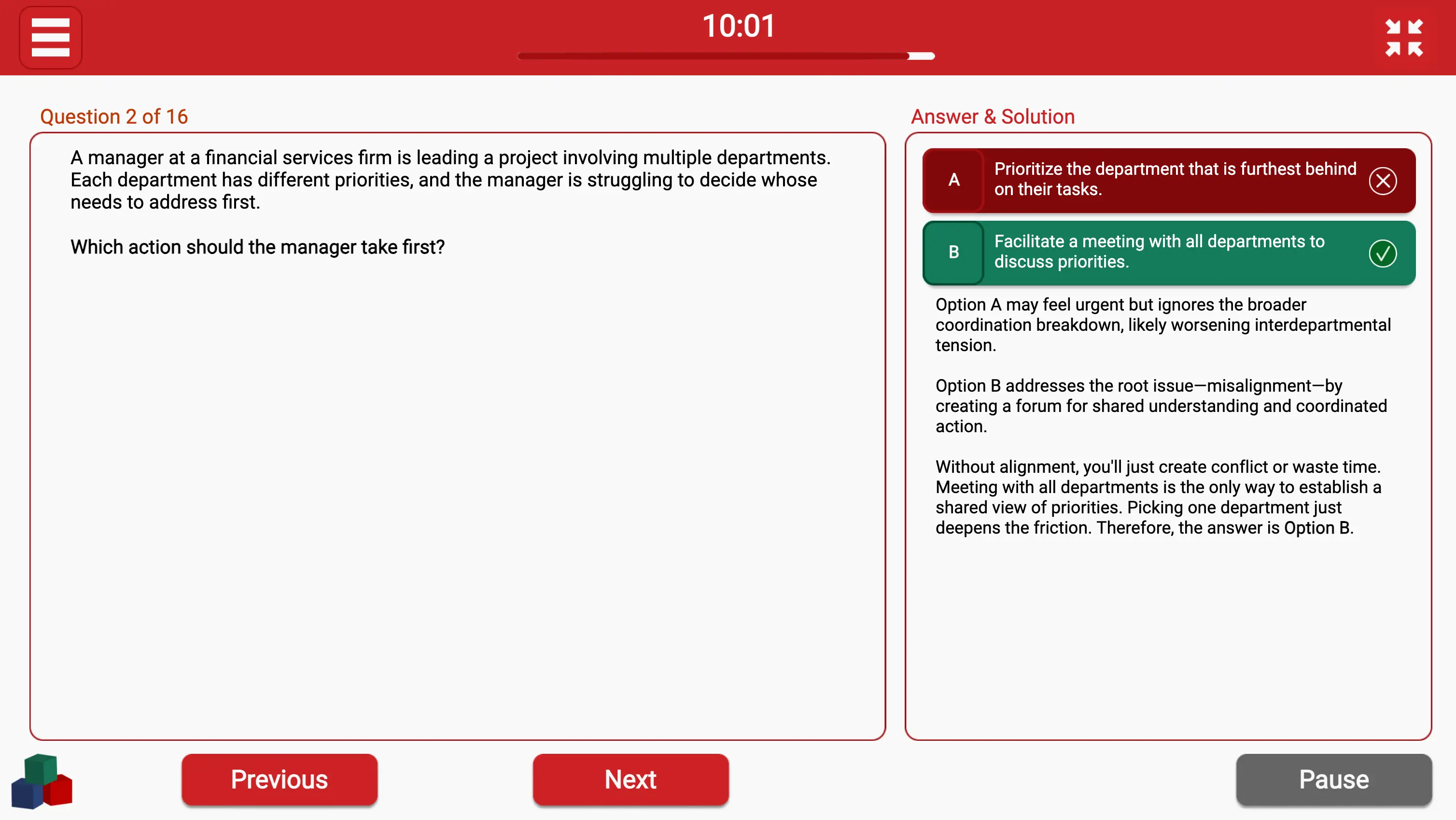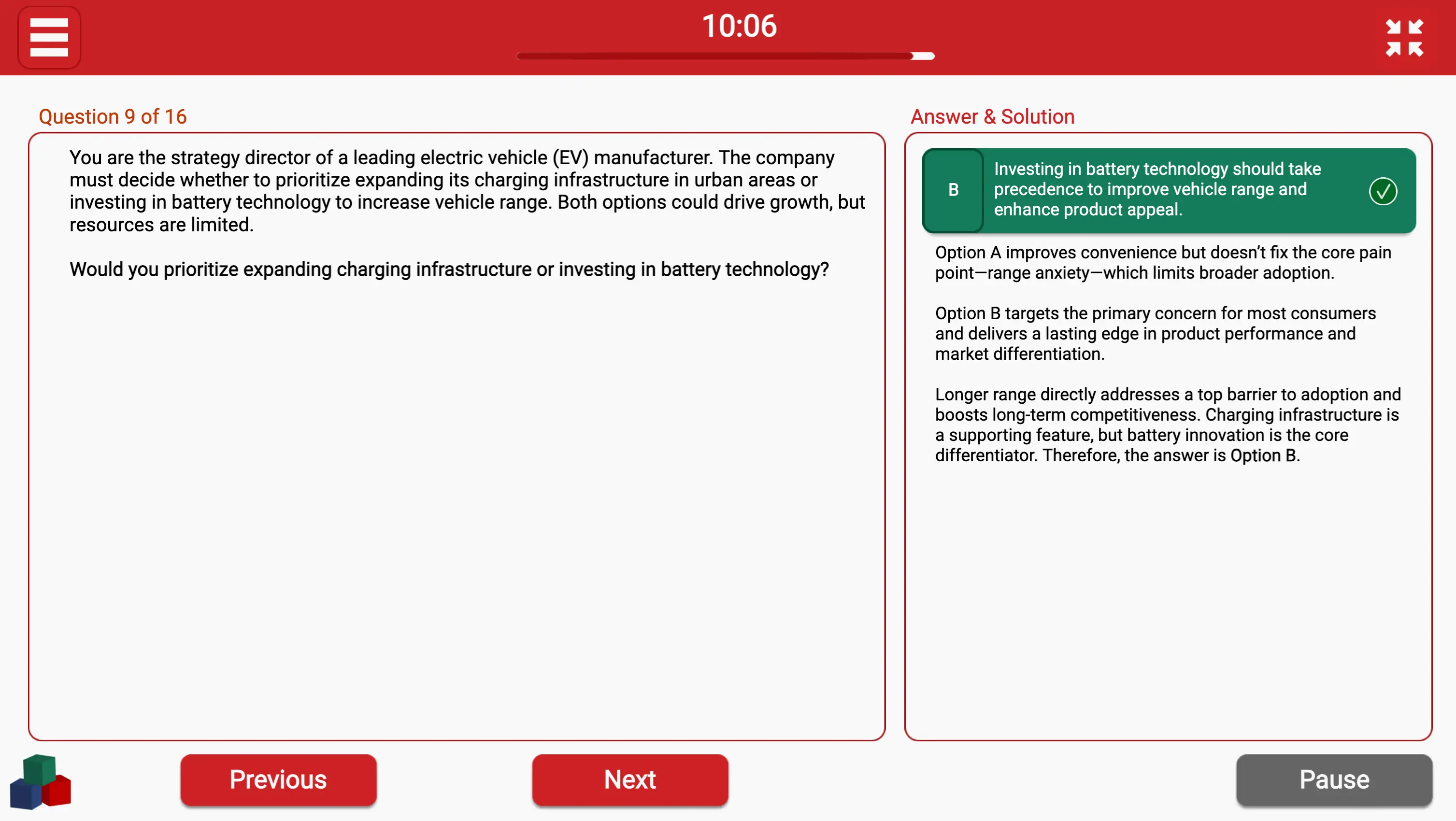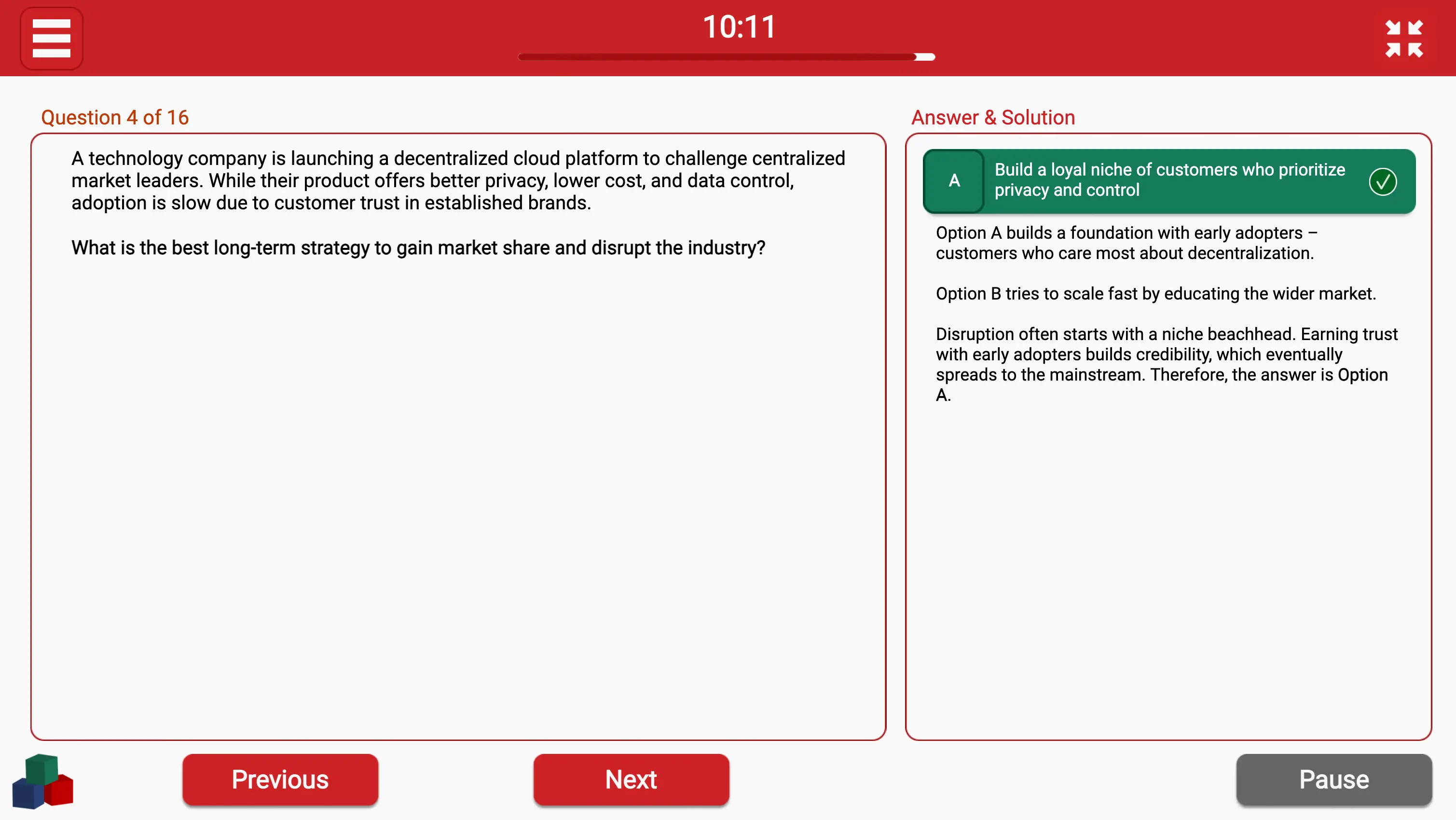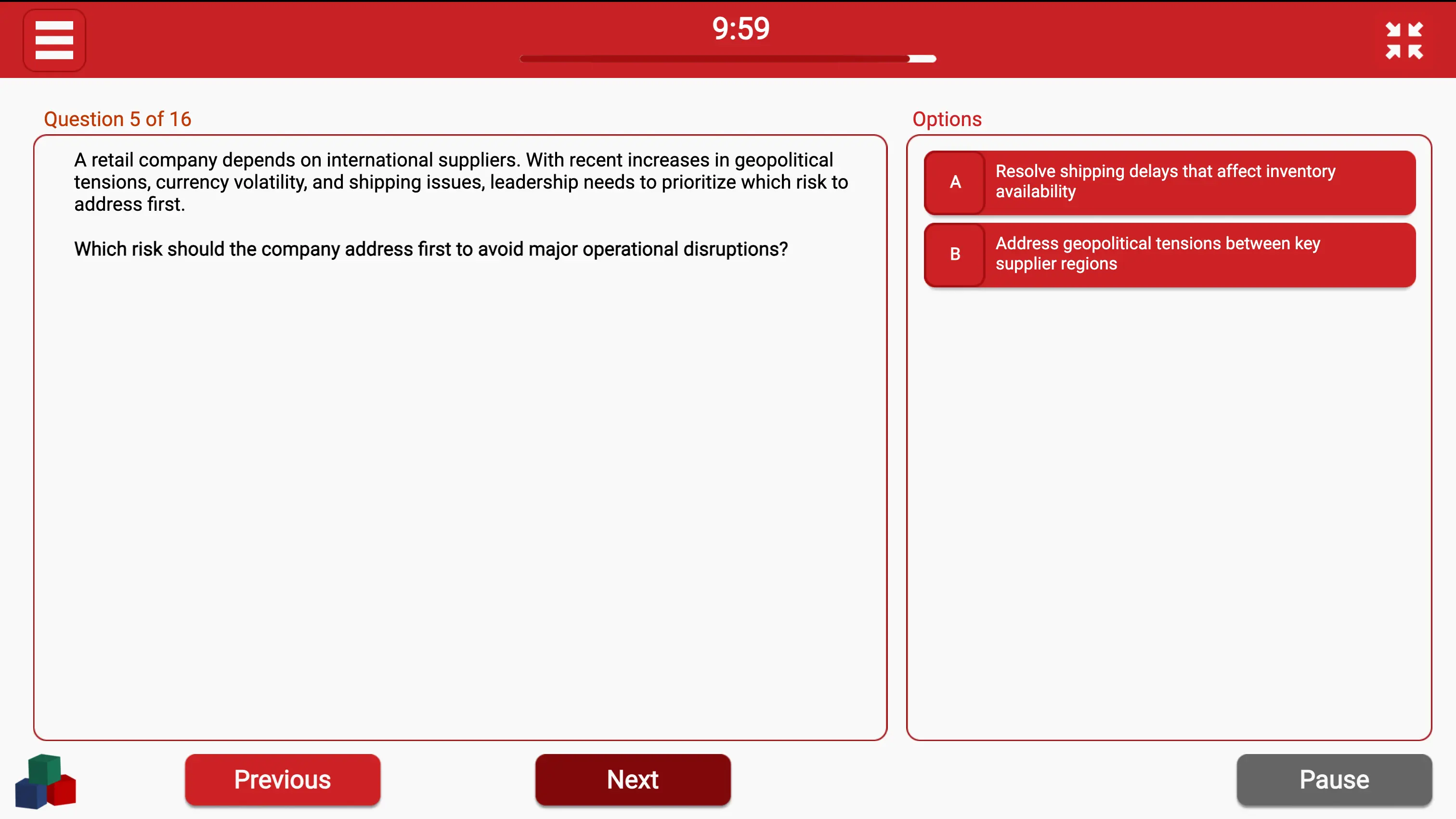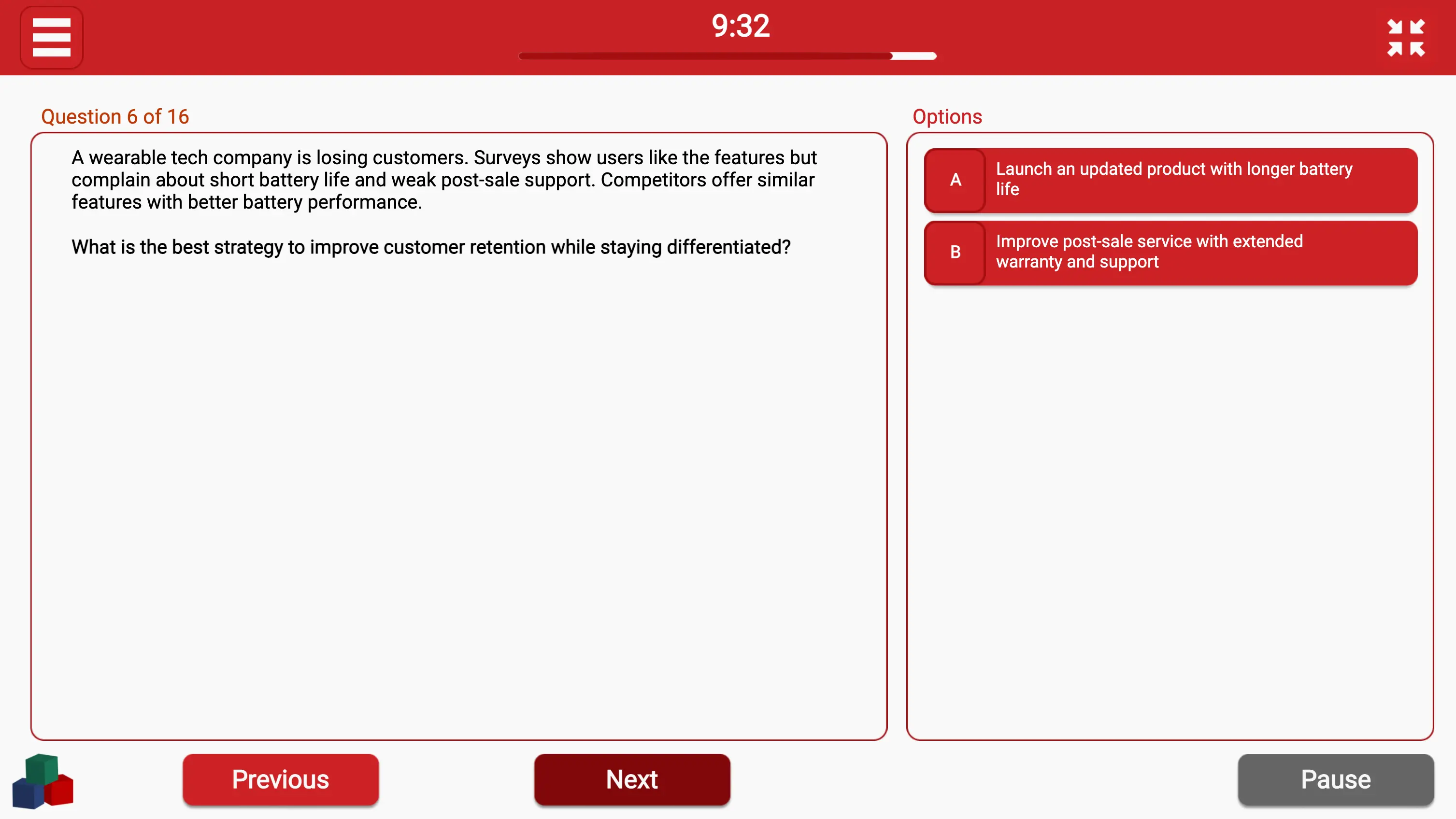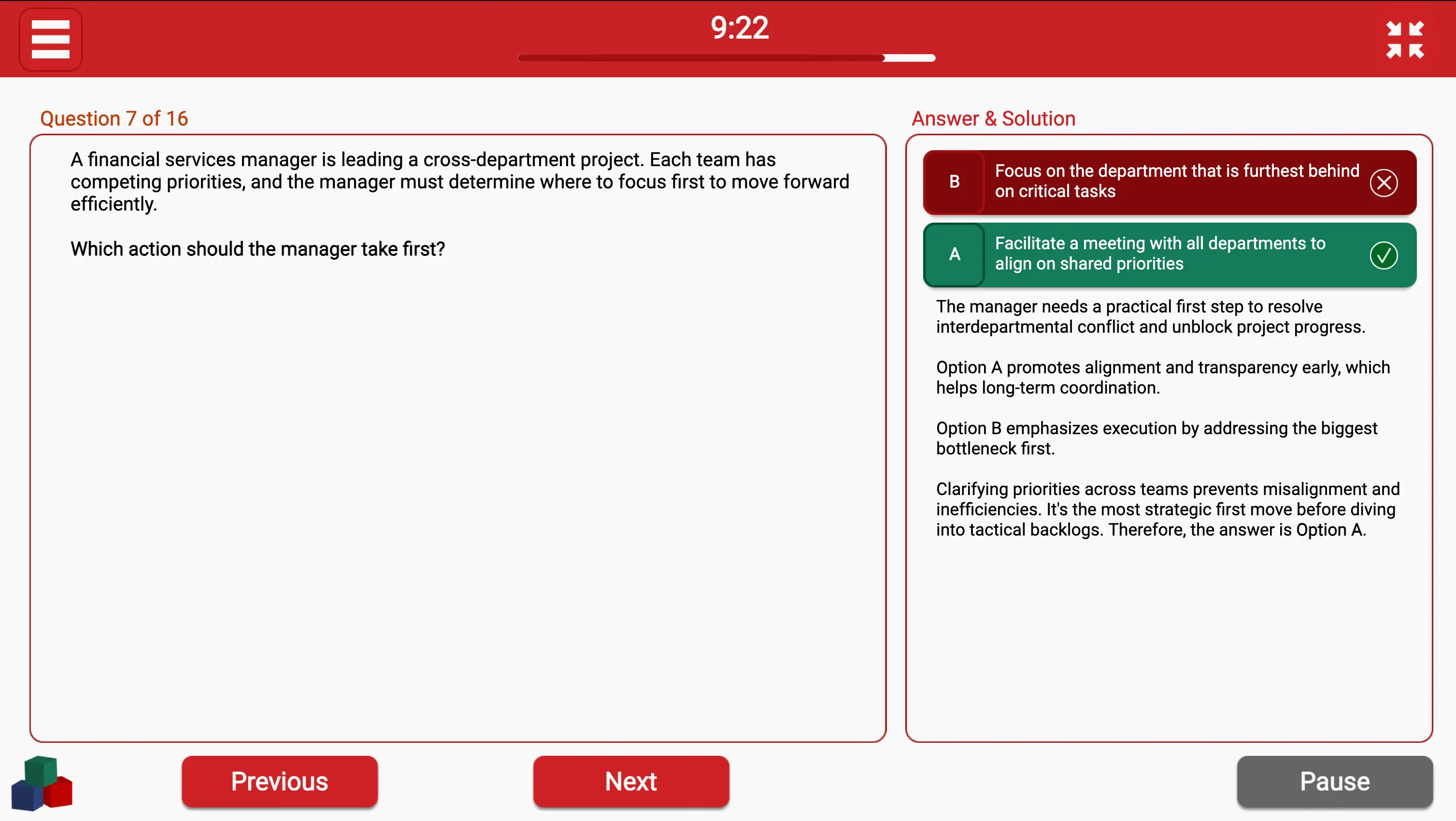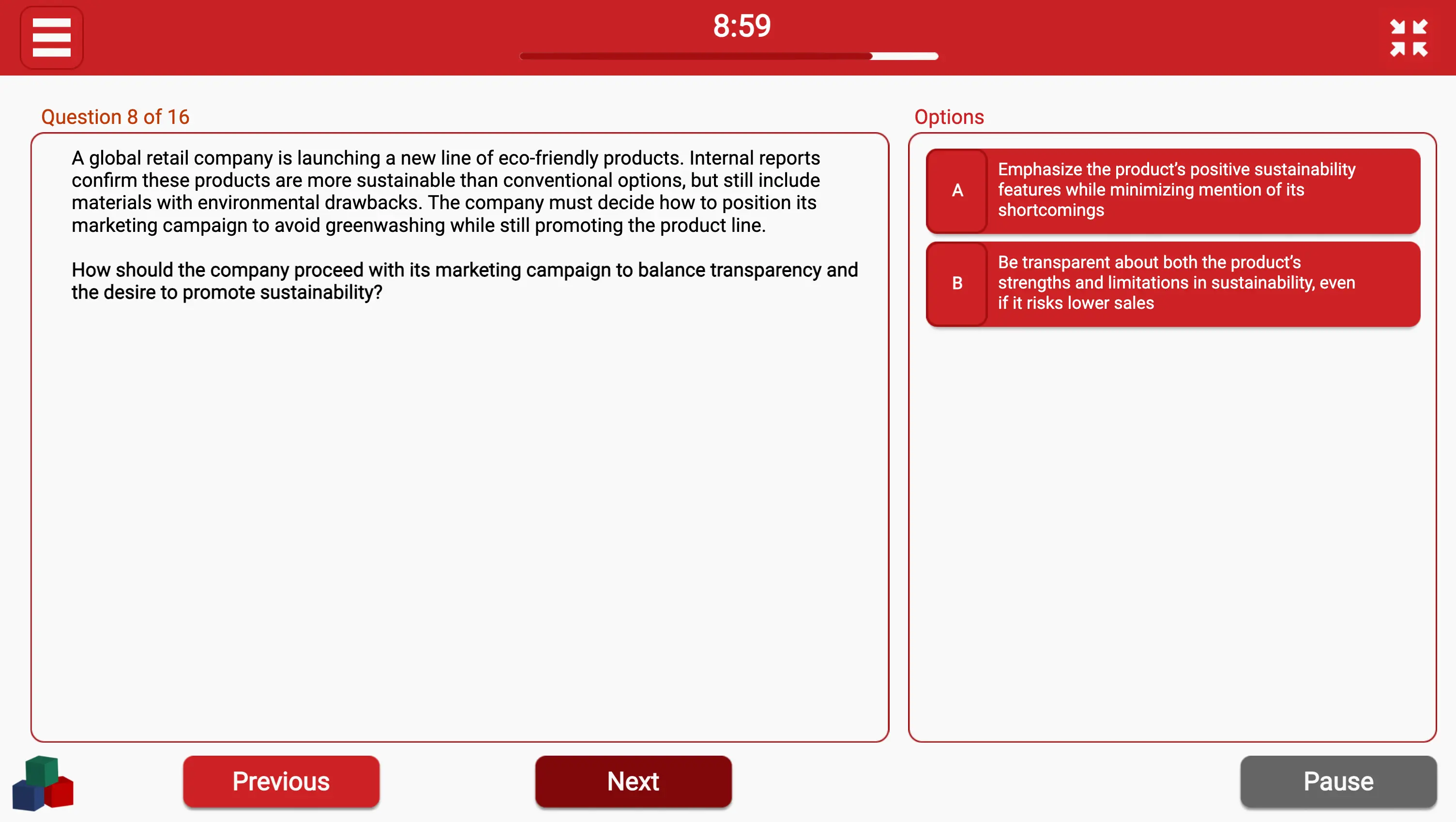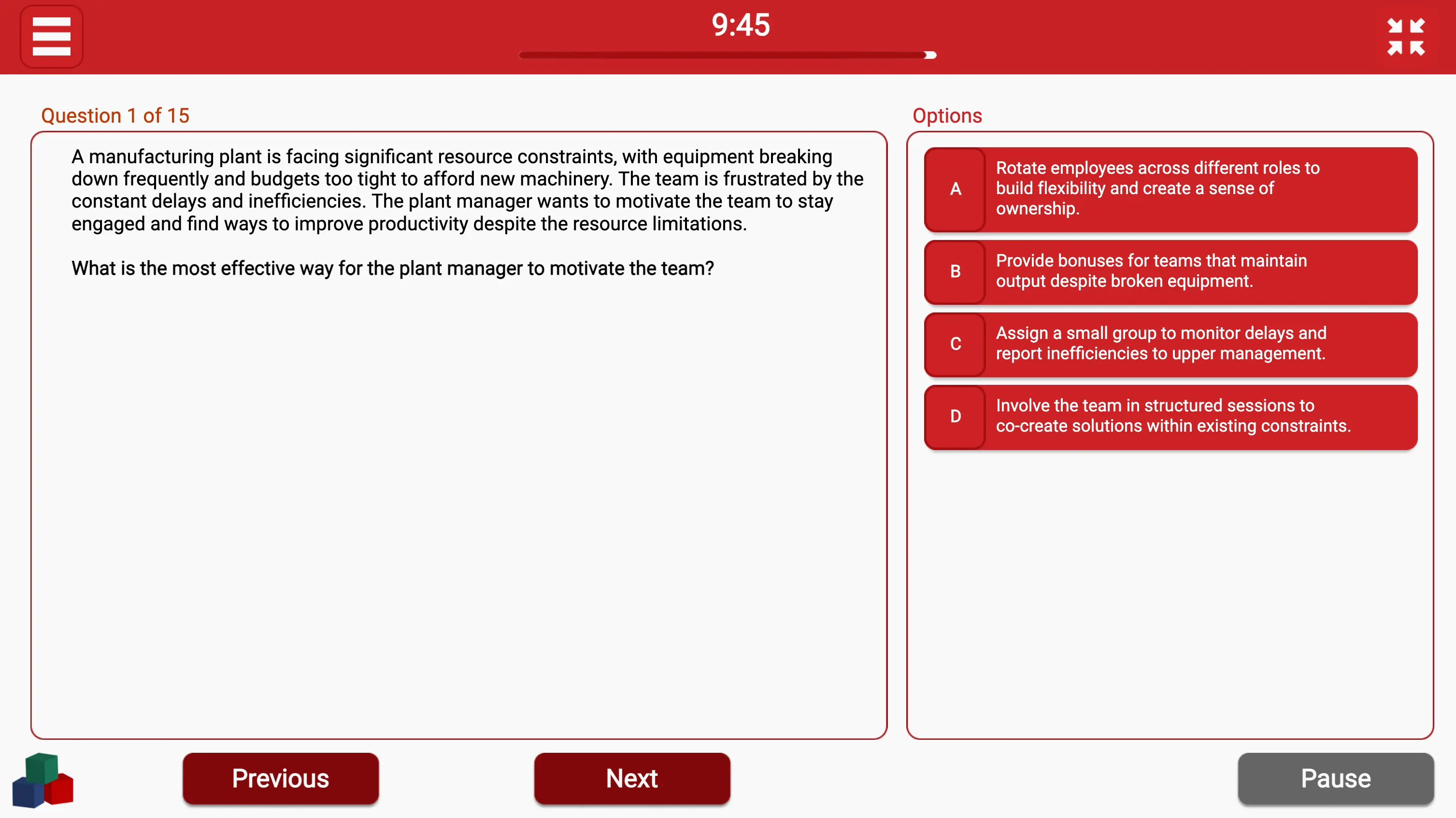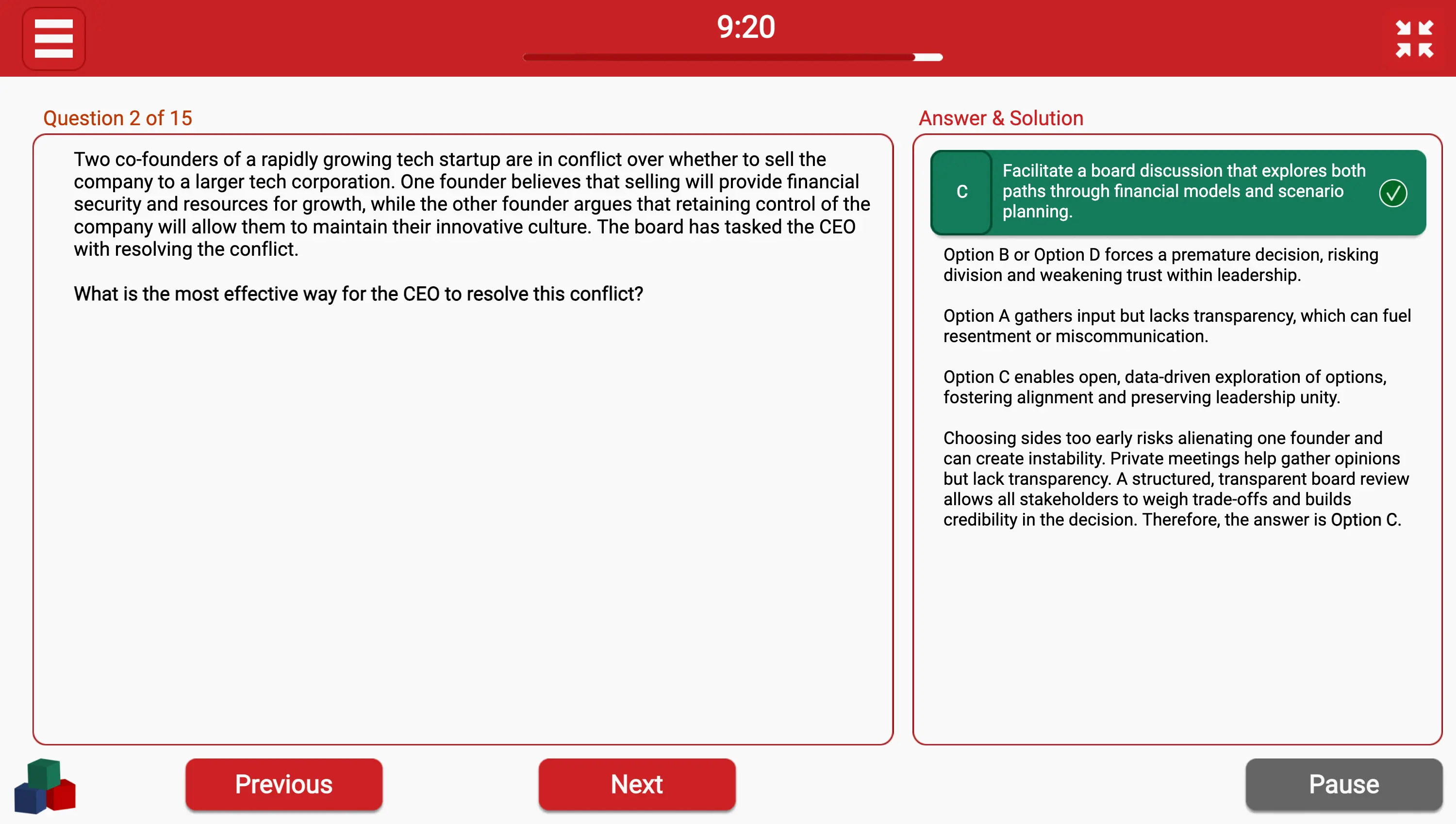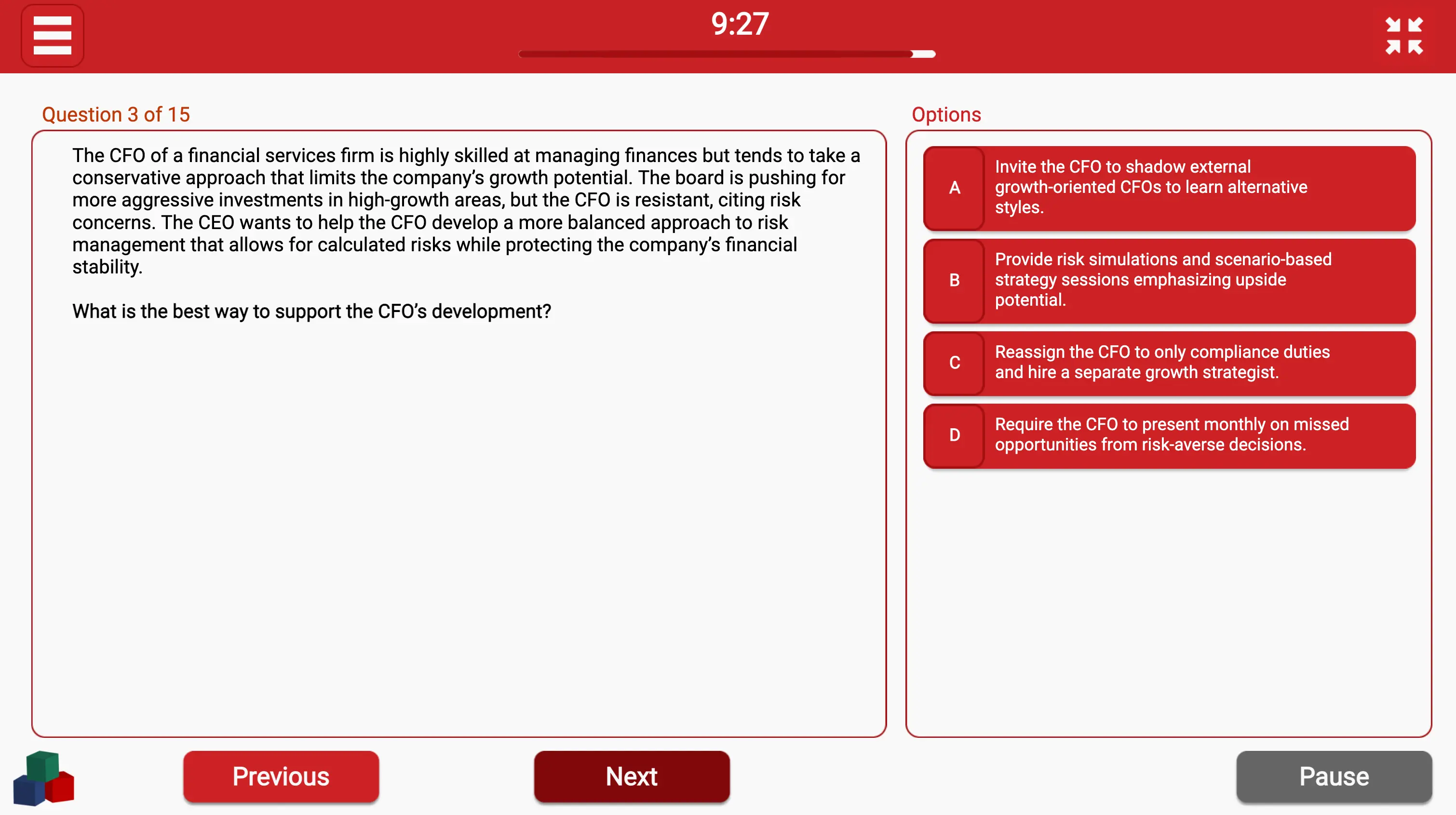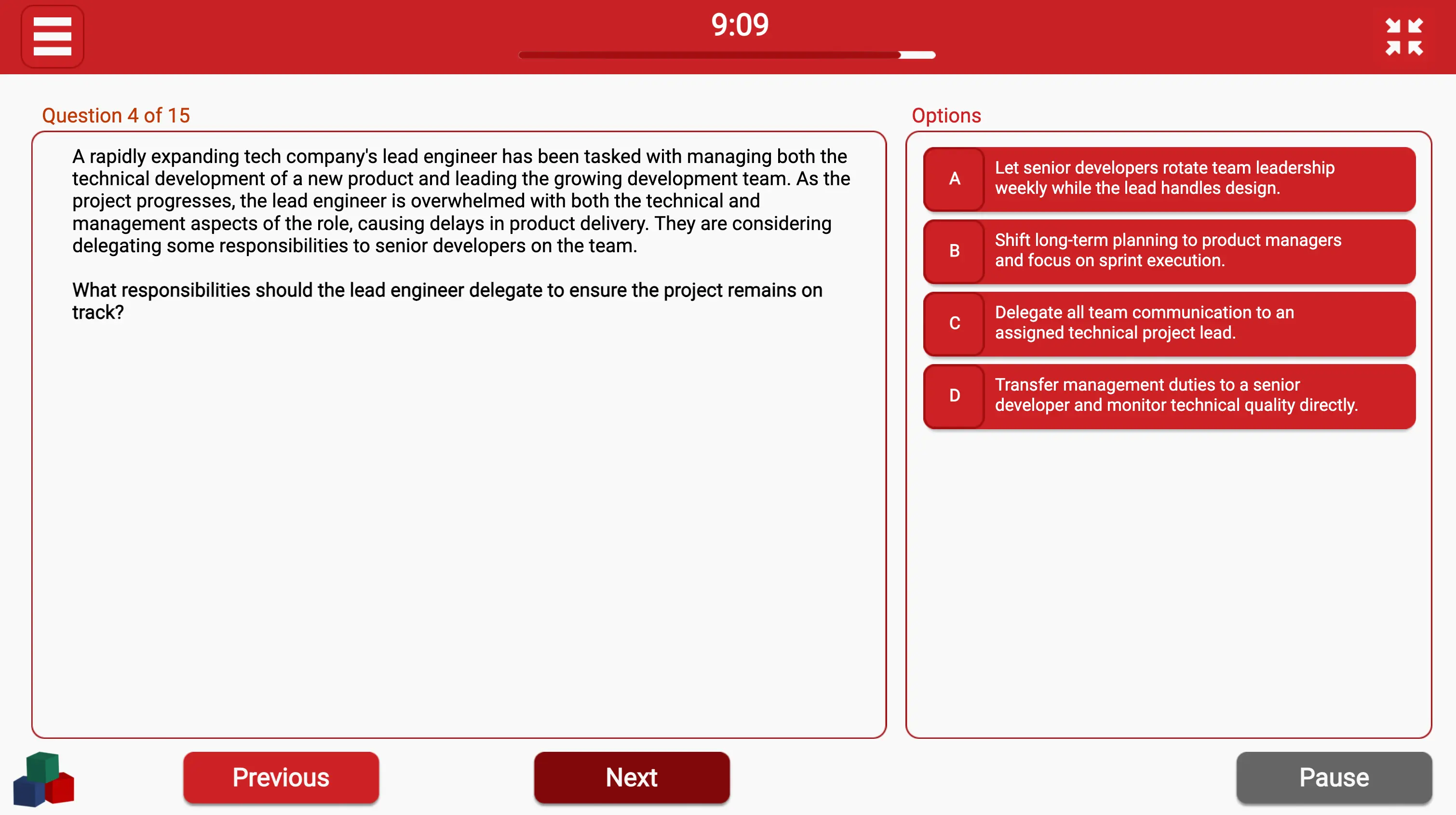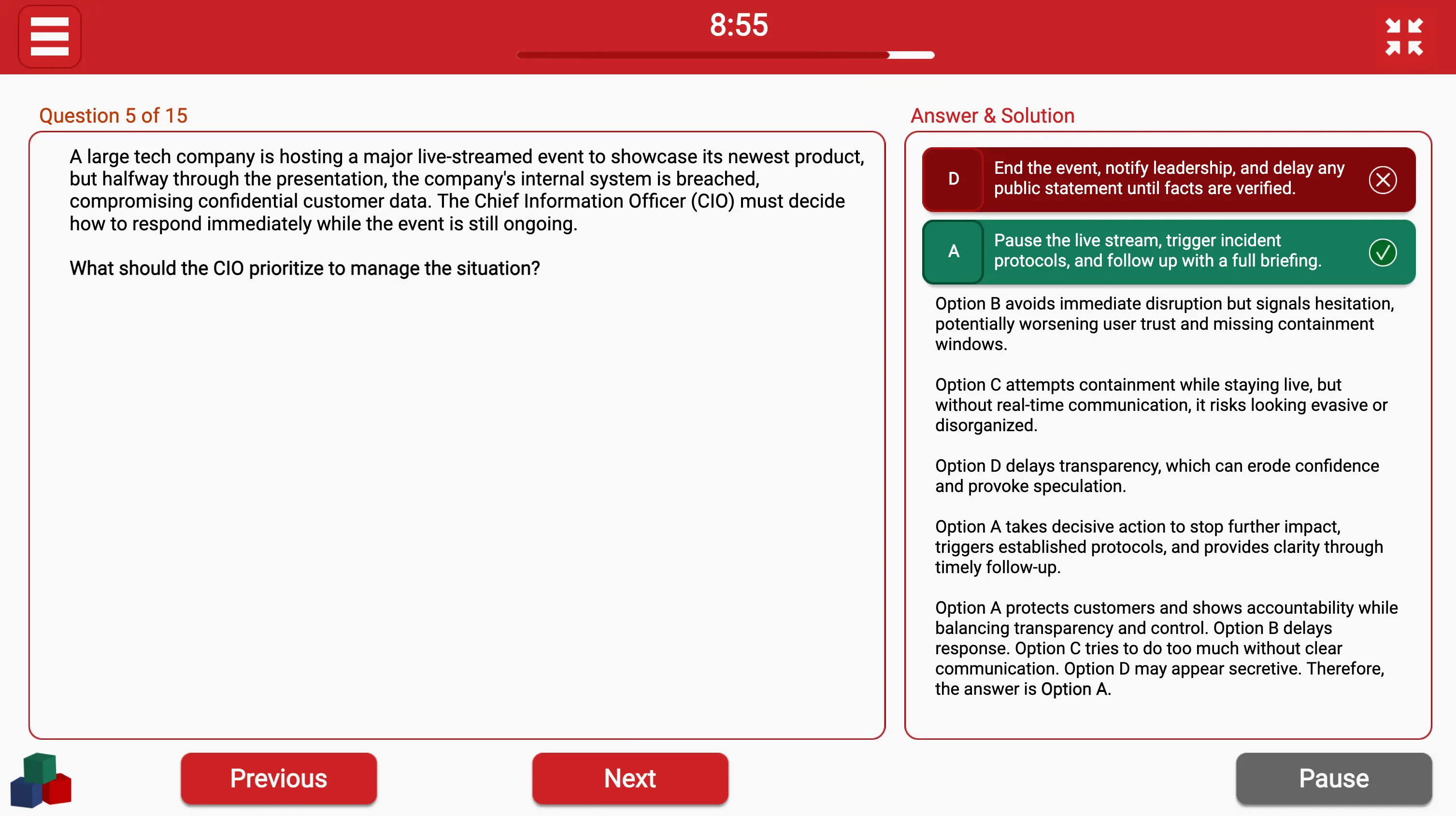Consulting Articles > Consulting Online/Screening Tests > Bain TestGorilla Assessment: Complete Guide [2026 Edition]
Bain & Company is known for its competitive hiring process, and the recently added Bain TestGorilla assessment has become a key part of it. Designed to evaluate more than just what’s on your resume, this test helps Bain quickly identify candidates with the right skills. Bain has traditionally used the SOVA test to measure candidates' cognitive abilities. However, in 2024, Bain surprised many candidates by introducing the TestGorilla as part of their screening process. Understanding this assessment and preparing thoroughly can set you apart from the competition and significantly increase your chances of advancing to the interview stages.
In this guide, we'll break down the Bain TestGorilla Assessment, covering its key components and offering tips to help you excel.
Check out our course on Bain TestGorilla Assessment. Sign up now for FREE Practice.
Table of Content:
- What is Bain TestGorilla Assessment?
- What Traits Does Bain Assess in Gorilla Test?
- What Does Bain Gorilla Test Assessment Include?
- How to Prepare for Bain TestGorilla Assessment?
- How is Bain TestGorilla Scored?
- How Does the Bain TestGorilla Differ from the Bain SOVA Test?
What is Bain TestGorilla Assessment?
The Bain TestGorilla assessment is a timed online test, typically part of Round 0: Bain Online Test, which takes place between the HR review—resume and cover letter screening (and possibly a 15-minute call with a recruiter)—and before Round 1 live interviews, whether in person or digital.
The test lasts around 45-50 minutes and consists of multiple-choice questions designed to assess the following skills:
- Logical reasoning
- Numerical reasoning
- Business acumen
- Situation decision-making
Figure: Bain Interview Process
NOTE - MBBs constantly edit their hiring steps & tests. All possible steps are listed. You might not get all of them. The steps are indicative. You will get specifics from MBB recruitment. Follow those.
This assessment allows Bain to evaluate how well you can handle real-world consulting challenges. It’s not about specific case knowledge but rather your ability to think critically, solve problems, and make sound decisions under pressure. Bain uses this test to identify candidates who demonstrate the potential to succeed in a fast-paced consulting environment.
What Traits Does Bain Assess in Gorilla Test?
The Bain TestGorilla Assessment is designed to measure several critical traits that are essential for success in a consulting role. Bain uses this assessment to identify candidates who possess the right mix of skills, cognitive abilities, and decision-making qualities needed to thrive in a fast-paced, high-pressure environment. Here’s a breakdown of the key traits Bain looks for:
1. Logical Reasoning
Logical reasoning is at the core of any consulting role. Bain assesses your ability to analyze complex information, spot patterns, and make sound conclusions. In the TestGorilla, you’ll be tasked with solving problems that require you to think critically and logically, often under time constraints.
This trait is critical because consulting work frequently involves sifting through large amounts of data, identifying trends, and making logical recommendations based on your findings. Bain wants to see how well you can structure your thinking and approach problems in an organized way.
Key examples:
- Solving puzzles or sequence questions that require the identification of logical patterns.
- Analyzing situations to determine the most rational and effective course of action.
2. Numerical Reasoning
Consulting often requires working with numbers—whether you’re analyzing financial data, estimating costs, or forecasting outcomes. Bain’s TestGorilla includes a numerical reasoning section to test how well you can interpret and work with numerical data.
In this part of the assessment, you may be asked to solve math word problems, analyze charts, and draw insights from numerical tables. Bain is looking for candidates who can handle quantitative analysis confidently and use numerical insights to drive business decisions.
Key examples:
- Interpreting data from charts and graphs.
- Solving mathematical problems related to percentages, ratios, and sequences.
3. Business Acumen
Bain places a high value on business acumen, which refers to your ability to make sound, strategic decisions based on business data and scenarios. The TestGorilla includes questions that simulate real-world business situations where you’ll need to evaluate options and choose the best course of action.
This trait is critical because consultants often advise clients on key business decisions. Bain wants to ensure that candidates have the judgment to make well-informed, strategic decisions, even when the stakes are high.
Key examples:
- Choosing between different business strategies based on financial data and market conditions.
- Evaluating risks and opportunities in a business scenario and recommending the most viable option.
4. Situational Decision-Making
In the consulting world, the ability to make decisions quickly and effectively is crucial. The situational decision-making section of the Bain TestGorilla assesses how well you can respond to real-world scenarios that involve multiple variables, pressure, and incomplete information.
Bain wants to see how candidates react to challenges and make decisions under time constraints—often with limited information. It’s about making the best possible decision with the data available while considering the bigger picture.
Key examples:
- Deciding how to allocate resources in a time-sensitive project.
- Responding to client challenges with quick, effective solutions.
5. Leadership and People Management
Beyond cognitive and analytical skills, Bain is also looking for candidates who have the potential to lead teams and manage relationships effectively. Leadership and people management skills are evaluated through scenarios where you might need to resolve conflicts, motivate a team, or delegate tasks in a high-pressure situation.
This trait is critical because consultants often manage multiple teams and must maintain high levels of productivity, even in challenging circumstances.
Key examples:
- Resolving a team conflict while ensuring project goals are met.
- Prioritizing tasks and delegating responsibilities in a way that ensures success.
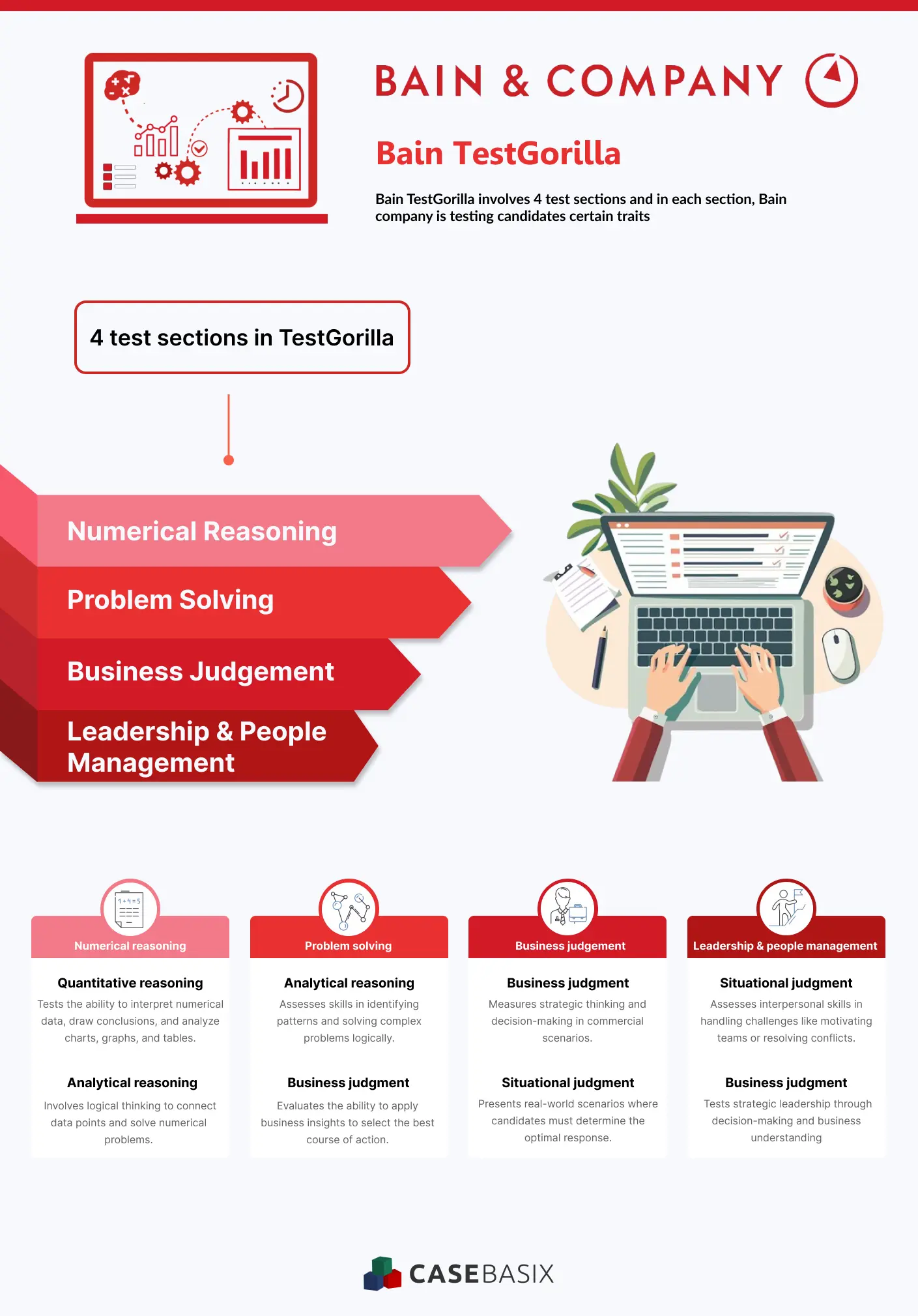
Figure: Bain TestGorilla Overview
Why These Traits Matter
Bain’s consulting roles require a combination of cognitive and interpersonal skills. Candidates need to not only think critically and solve problems but also communicate effectively, lead teams, and make smart business decisions. The Bain TestGorilla helps the firm assess these core traits early in the recruitment process, ensuring that those who move forward are equipped to handle the unique challenges of consulting.
By preparing for each of these traits and understanding how Bain assesses them, you’ll be better positioned to succeed on the test and move one step closer to landing a Bain offer.
What does Bain Gorilla Test Assessment include?
The TestGorilla assessment used by Bain is typically split into four main sections, though some candidates may be asked to complete only three. Numerical reasoning is a constant, while the remaining sections cover business judgment, leadership, and problem-solving. Each section is designed to test a unique skill set, ensuring that Bain gets a holistic view of a candidate’s potential.
Candidates are required to take the test in a digital format, similar to exams like the GMAT. Each section lasts between 8 to 15 minutes, making the total time for the assessment around 45-50 minutes. Bain provides a flexible testing window, allowing candidates to complete the assessment at their convenience within a specified timeframe after submitting their application.
Here’s a detailed breakdown of the key sections you’ll encounter in the Bain TestGorilla Assessment, along with examples of the types of questions you might face:
Numerical Reasoning Section
Numerical reasoning is a core component of the assessment, designed to evaluates your ability to work with numbers, interpret data, and apply quantitative analysis to real-world problems. You’ll face math word problems, data analysis, and pattern recognition challenges. The numerical reasoning section often involves analyzing charts, graphs, and tables, requiring you to draw conclusions and make data-driven decisions.
Bain consistently includes this section in the assessment, regardless of whether candidates are asked to complete three or four total sections.
This section covers a range of question types, from basic math problems to complex sequences. Below is a detailed breakdown of the components in this section:
1. Math Word Problem
This part of the numerical reasoning section presents candidates with real-world problems that require mathematical solutions. You’ll be expected to perform calculations involving percentages, ratios, and algebraic expressions to solve these word problems.
Example Question:
Figure: Bain TestGorilla Numerical Reasoning - Math Word Problem
2. Data Analysis
In this section, candidates are presented with charts, graphs, and tables, where they need to analyze data to answer the questions. This requires interpreting the data accurately and making logical inferences.
Example Question:
Figure: Bain TestGorilla Numerical Reasoning - Data Analysis
3. Number Series
In this section, you will encounter a series of numbers that follow a particular rule or pattern. Your task is to identify the rule and determine the next number in the series. These patterns can vary widely and may include simple arithmetic or geometric progressions, more complex combinations, or even non-numeric elements such as alphabetic or alphanumeric sequences.
Example Question:
Figure: Bain TestGorilla Numerical Reasoning - Number Series
Key skills assessed
- Solving math problems involving percentages, ratios, and sequences.
- Interpreting data from visual sources like graphs and charts.
- Identifying patterns and trends in numerical data.
Preparation Tip
Practice puzzles that require you to spot trends in sequences, as these types of questions test your ability to navigate abstract thinking.
Critical Thinking Section
The critical thinking section of the Bain TestGorilla assessment evaluates your ability to reason logically, assess evidence, and draw sound conclusions. This section measures how effectively you can identify assumptions, evaluate relationships between ideas, and determine the strength or weakness of arguments. It’s designed to reflect the kind of analytical reasoning Bain expects from consultants who must interpret complex information and make data-driven recommendations.
This section often includes passages, short arguments, or statements that require analytical interpretation. You’ll need to use deductive and inductive reasoning to make accurate judgments.
Below is a detailed breakdown of the components in this section:
1. Assumption Recognition
This component tests your ability to detect unstated assumptions that underlie an argument. You’ll be presented with a short passage or claim and must determine what implicit ideas or beliefs the argument depends on.
Example Question:

Figure: Bain TestGorilla Critical Thinking – Assumption Recognition
2. Evaluating Relationships
This section measures your ability to analyze cause-and-effect relationships, correlations, and logical connections between variables or ideas. You’ll often see questions involving patterns of reasoning or comparisons between scenarios.
Example Question:

Figure: Bain TestGorilla Critical Thinking – Evaluating Relationships
3. Logical Reasoning
Logical reasoning questions assess your ability to draw valid conclusions from given information. You’ll analyze short passages, identify valid inferences, and determine whether arguments are logically consistent.
Example Question:

Figure: Bain TestGorilla Critical Thinking – Logical Reasoning
4. Strengthening/Weakening Arguments
In this part, you’ll evaluate how new evidence impacts an existing argument. Each question presents an argument followed by statements that could either strengthen or weaken it. Your task is to determine which option most affects the argument’s validity.
Example Question:

Figure: Bain TestGorilla Critical Thinking – Strengthening/Weakening Arguments
Key Skills Assessed:
- Identifying assumptions, logical flaws, and hidden premises in arguments
- Evaluating cause-and-effect relationships and drawing valid conclusions
- Applying deductive and inductive reasoning to assess complex information
- Strengthening or weakening arguments based on new evidence or context
Preparation Tip:
To excel in the critical thinking section, practice analyzing short arguments, editorials, and case studies. Focus on identifying what supports or weakens a conclusion and sharpen your ability to reason logically under time constraints, as Bain consultants often must do in real business scenarios.
Working with Data Section
The Working with Data section of the Bain TestGorilla assessment evaluates your ability to manage, interpret, and draw conclusions from data, a critical skill for consultants who must turn raw information into actionable insights. This section measures both your technical understanding of data principles and your practical ability to apply them to real business scenarios.
Bain emphasizes this skill because consultants regularly analyze large datasets, assess trends, and present data-backed recommendations to clients. Expect questions involving descriptive statistics, data validation, and interpretation of visual data representations.
Below is a detailed breakdown of the components in this section:
1. Statistical Measures & Concepts
This component tests your understanding of core statistical concepts and your ability to apply them to solve analytical problems. You will work with measures such as mean, median, mode, standard deviation, and correlation to interpret data trends and variability.
Example Question:

Figure: Bain TestGorilla Working with Data - Statistical Measures & Concepts
2. Data Cleaning & Preparation
This section evaluates your ability to identify inconsistencies, outliers, and errors in raw datasets. Candidates must recognize missing values, duplicate records, and irrelevant data that could distort analysis outcomes.
Example Question:

Figure: Bain TestGorilla Working with Data - Data Cleaning & Preparation
3. Data Interpretation
In this part, you will analyze visualized data such as charts, graphs, and tables, and derive logical conclusions from the presented information. This section assesses your ability to transform quantitative data into clear insights that support business decision-making.
Example Question:

Figure: Bain TestGorilla Working with Data - Data Interpretation
Key Skills Assessed:
- Understanding statistical measures such as averages, variance, and correlation
- Cleaning and preparing data for accurate analysis and decision-making
- Interpreting charts, graphs, and tables to identify trends and insights
- Translating quantitative findings into clear, actionable business conclusions
Preparation Tip:
To perform well in the working with data section, practice analyzing datasets, identifying outliers, and interpreting visual data. Focus on accuracy, attention to detail, and the ability to extract meaningful insights from raw information, skills that Bain consultants rely on in real client analyses.
Problem Solving Section
The Problem Solving section of the Bain TestGorilla Assessment evaluates your ability to think critically and solve complex, multi-step problems. In this section, you’ll encounter real-world scenarios where you need to use logic and structured reasoning to find solutions. The problems in this section often require quick thinking and the ability to analyze information accurately under pressure.
Here’s a breakdown of the key question types you may face in this section:
1. Timetable Questions
Timetable questions test your ability to manage schedules and organize tasks efficiently. You’ll be presented with scenarios that involve setting up or analyzing schedules, and you’ll need to identify conflicts, gaps, or optimal arrangements.
Example Question:
Figure: Bain TestGorilla Problem Solving - Timetable
2. Rate Questions
Rate questions involve calculating productivity, speed, or efficiency. You’ll be given a scenario with variables like time, distance, or output, and asked to determine the rate or total outcome based on these factors.
Example Question:
Figure: Bain TestGorilla Problem Solving - Rate
3. Arrangement Questions
Arrangement questions assess your ability to organize items or tasks based on specific rules or constraints. These questions often involve sorting or positioning elements in a logical order.
Example Question:
Figure: Bain TestGorilla Problem Solving - Arrangement
4. Table Questions
In table questions, you will need to interpret and analyze information presented in tables to answer questions. These types of problems are designed to test your ability to extract key insights from structured data.
Example Question:
Figure: Bain TestGorilla Problem Solving - Table
5. Venn Diagram Questions
In Venn diagram questions, you will need to analyze relationships between groups and identify overlaps, differences, or unique elements. These problems test your ability to categorize information logically and draw correct conclusions from multiple sets.
Example Question:
Figure: Bain TestGorilla Problem Solving - Venn Diagram
Key Skills Assessed in Problem Solving
- Managing and analyzing timetables and schedules.
- Calculating rates and productivity efficiently.
- Arranging items or tasks logically based on constraints.
- Interpreting data from tables and making informed decisions.
Preparation Tip
Practice solving real-life scenarios that involve scheduling, calculating rates, and analyzing data. Familiarize yourself with multi-step problems that require logical arrangement and interpretation of structured data. Time management is key in this section, so practicing under timed conditions will improve your speed and accuracy.
Business Judgment Section
The Business Judgment section of the Bain TestGorilla Assessment evaluates your ability to make sound business decisions based on real-world scenarios. In this section, you will encounter questions that simulate various aspects of business management, requiring you to analyze financial data, assess risks, make strategic decisions, and more. Bain uses this section to assess whether candidates can think critically and navigate complex business environments efficiently, which is essential for consulting roles.
Below is a breakdown of the key components of the Business Judgment section:
1. Strategic Decision-Making
Strategic decision-making questions test your ability to evaluate different courses of action and select the most effective one for long-term success. These questions require you to assess business goals, resources, and market conditions to make informed decisions.
Example Question:
Figure: Bain TestGorilla Business Judgment - Strategic Decision-Making
2. Operational Problem-Solving
These questions assess your ability to solve practical problems related to day-to-day business operations. You may be asked to optimize processes, manage resources, or improve efficiency in specific scenarios.
Example Question:
Figure: Bain TestGorilla Business Judgment - Operational Problem-Solving
3. Financial Judgment
Financial judgment questions test your ability to interpret financial data and make decisions based on metrics such as profitability, return on investment (ROI), and cash flow. These types of questions are crucial for assessing your ability to manage business finances effectively.
Example Question:
Figure: Bain TestGorilla Business Judgment - Financial Judgment
4. Market and Competitive Analysis
This section involves analyzing market conditions and competitive landscapes to identify opportunities or threats. You'll be expected to assess how external factors like market trends, competitor behavior, and customer demand impact business decisions.
Example Question:
Figure: Bain TestGorilla Business Judgment - Market and Competitive Analysis
5. Risk Management
Risk management questions evaluate your ability to assess and mitigate risks in business scenarios. You’ll need to weigh the potential benefits of a decision against the possible risks to the organization.
Example Question:
Figure: Bain TestGorilla Business Judgment - Risk Management
6. Customer and Product Management
This component assesses your ability to make decisions related to product development, customer satisfaction, and market positioning. You’ll be tasked with deciding how to manage products and relationships with customers to maximize value.
Example Question:
Figure: Bain TestGorilla Business Judgment - Customer and Product Management
7. Leadership and Stakeholder Management
In this part of the assessment, you will face questions related to leadership and managing relationships with key stakeholders. You’ll be expected to demonstrate your ability to handle conflicts, motivate teams, and engage with stakeholders effectively.
Example Question:
Figure: Bain TestGorilla Business Judgment - Leadership and Stakeholder Management
8. Ethical and Corporate Social Responsibility (CSR)
This section tests your ability to make decisions that align with ethical standards and corporate social responsibility. You’ll need to weigh the ethical implications of business actions and consider how they affect stakeholders and society at large.
Example Question:
Figure: Bain TestGorilla Business Judgment - Ethical and Corporate Social Responsibility (CSR)
Key Skills Assessed in Business Judgment
- Strategic thinking and long-term planning
- Financial analysis and interpreting business metrics
- Risk assessment and decision-making under uncertainty
- Leadership and team management
- Ethical decision-making in business scenarios
Preparation Tip
Practice reviewing business case studies and financial reports to sharpen your decision-making skills. Focus on identifying the key elements of a scenario, assessing risks, and selecting solutions that align with the company’s long-term goals and ethical standards.
Leadership and People Management Section
The Leadership and People Management section in the Bain TestGorilla Assessment evaluates your ability to manage teams effectively, resolve conflicts, and make critical decisions under pressure. This section is crucial for consulting roles, where managing people and projects is as important as solving business problems. The questions in this section often involve real-world scenarios that test how well you can inspire, guide, and organize others to achieve common goals.
Here’s a breakdown of the key components:
1. Motivating Teams
Motivating teams is a critical skill in consulting, where long hours and challenging projects can sometimes lead to team burnout. This component assesses your ability to keep teams energized, aligned with goals, and working effectively toward project completion.
Example Question:
Figure: Bain TestGorilla Leadership and People Management - Motivating Teams
2. Conflict Resolution
In this component, you’ll be evaluated on your ability to mediate conflicts within a team or between team members. Conflict resolution is essential for ensuring that disagreements don’t derail project progress.
Example Question:
Figure: Bain TestGorilla Leadership and People Management - Conflict Resolution
3. Coaching and Development
Coaching and developing team members is crucial for long-term success in consulting, where individual growth leads to better team performance. This component tests your ability to mentor and develop others, helping them to achieve their full potential.
Example Question:
Figure: Bain TestGorilla Leadership and People Management - Coaching and Development
4. Delegation and Prioritization
Effective delegation is crucial for managing large projects and ensuring tasks are completed efficiently. This component assesses how well you can allocate tasks to the right people and prioritize work to meet deadlines.
Example Question:
Figure: Bain TestGorilla Leadership and People Management - Delegation and Prioritization
5. Decision-Making Under Pressure
Consulting often requires making critical decisions in high-pressure situations. This component tests your ability to assess complex scenarios, make swift decisions, and ensure that the outcomes are aligned with business goals.
Example Question:
Figure: Bain TestGorilla Leadership and People Management - Decision-Making Under Pressure
Key Skills Assessed in Leadership and People Management
- Team motivation and sustaining high performance
- Conflict resolution to ensure smooth team dynamics
- Coaching and development of team members
- Effective delegation and prioritization of tasks
- Making decisions under pressure and adapting to changing circumstances
Preparation Tip
To prepare for this section, practice scenarios that require quick thinking, team management, and conflict resolution. Focus on developing your leadership style and understanding how to inspire teams, delegate tasks effectively, and maintain productivity under tight deadlines.
How to prepare for Bain TestGorilla Assessment?
Preparing for the Bain TestGorilla Assessment requires a structured approach, focusing on the core skills the test evaluates, such as numerical reasoning, business judgment, leadership, and problem-solving. To give yourself the best chance of success, you should familiarize yourself with the format of the test, practice regularly, and sharpen key consulting-related skills. Below are some comprehensive preparation strategies:
1. Understand the Test Format
Before diving into your preparation, it’s essential to understand the Bain TestGorilla Assessment’s structure. The test typically includes four sections: Numerical Reasoning, Business Judgment, Leadership and People Management, and Problem-Solving. Each section tests specific skills, and you’ll need to prepare accordingly. Ensure you are familiar with the types of questions that appear in each section, from mathematical word problems to scenario-based decision-making.
Tip: Review the structure of each section and practice answering similar questions under timed conditions.
2. Prioritize Practice
Consistent practice is key to mastering the Bain TestGorilla Assessment. Focus on all sections—numerical reasoning, business judgment, leadership, and problem-solving—using tools like the Bain SOVA Test for relevant practice. The SOVA Test mimics Bain’s format, helping you build familiarity with the types of questions you’ll face.
Tip: Schedule your practice sessions regularly, treating them as you would an actual test, to maintain a consistent level of improvement and confidence.
3. Time Management is Key
The Bain TestGorilla Assessment is timed, and effective time management can significantly impact your performance. Work on allocating appropriate time to each section and ensuring you’re not spending too much time on difficult questions.
- If a question is taking too long, move on and come back to it later if time allows.
- Practice under timed conditions regularly to build up your speed and accuracy.
Tip: Familiarize yourself with keyboard shortcuts or other tools that might help you save time during the assessment.
How is Bain TestGorilla Scored?
In each section of the Bain TestGorilla, candidates are evaluated on multiple key skills. For example, in the Problem Solving section, Bain measures your ability to adjust schedules, interpret data, prioritize tasks, and draw logical conclusions from provided information. Each of these skills is scored on a scale of 1 to 3, where 3 indicates strong performance.
After completing a section, an average score is calculated to give an overall view of your abilities for that particular section. Although time is tracked, Bain prioritizes accuracy over speed. It’s better to take your time and provide correct answers than rush through the questions, which could result in mistakes.
How Does the Bain TestGorilla Differ from the Bain SOVA Test?
The Bain TestGorilla and the Bain SOVA Test are both essential tools in Bain & Company's recruitment process, but they differ significantly in focus and purpose.
The Bain SOVA Test primarily assesses general cognitive abilities such as verbal reasoning, numerical reasoning, and logical reasoning. This test is more about evaluating a candidate's general aptitude, with questions that test basic numerical skills and comprehension. It also includes a psychometric component to gauge how well a candidate’s personality aligns with Bain’s values and culture. As a general aptitude test, SOVA is used earlier in the recruitment process to filter candidates based on their cognitive and personality traits.
In contrast, the Bain TestGorilla is more targeted at assessing skills specific to consulting roles. It focuses on business judgment, problem-solving, leadership, and the ability to make decisions under pressure. While it still includes elements of numerical reasoning, the emphasis is on how candidates perform in business scenarios, evaluating their ability to manage real-world consulting challenges. The TestGorilla helps Bain determine how well candidates can handle complex business problems and lead teams effectively.
In summary:
- Bain SOVA Test: Focuses on general cognitive abilities, including verbal and numerical reasoning, and includes a psychometric evaluation.
- Bain TestGorilla: Focuses on consulting-specific skills such as business judgment, leadership, and problem-solving in real-world scenarios.
This differentiation helps Bain assess a broader range of candidates, from general cognitive abilities to consulting-specific competencies.
Frequently Asked Questions
Q: What is the Bain TestGorilla Assessment?
A: The Bain TestGorilla Assessment is an online test used by Bain & Company to assess candidates’ skills in logical reasoning, numerical reasoning, business judgment, leadership, and problem-solving, helping Bain identify candidates with the potential to succeed in consulting roles.
Q: How do I prepare for the Bain TestGorilla Assessment?
A: To prepare for the Bain TestGorilla Assessment, practice logical reasoning and numerical problems, review business judgment and leadership scenarios, and familiarize yourself with the test format to improve your time management and decision-making skills.
Q: What types of questions are included in the Bain TestGorilla Assessment?
A: The Bain TestGorilla Assessment includes questions in logical reasoning, numerical reasoning, situational judgment, and business scenarios that evaluate decision-making, leadership, and problem-solving abilities under pressure.
Q: How long is the Bain TestGorilla Assessment?
A: The Bain TestGorilla Assessment lasts around 45 to 50 minutes, with each section (numerical reasoning, business judgment, leadership, and problem-solving) typically lasting 8 to 15 minutes.
Q: What happens after I take the Bain TestGorilla Assessment?
A: After completing the Bain TestGorilla Assessment, Bain & Company will review your performance to determine whether you qualify for the next steps in the recruitment process, which may include interviews or additional assessments.

